#wisdom Chinese people experience
Explore tagged Tumblr posts
Text
Wisdom comes from experience
Wisdom comes from experience Right or wrong? The old Chinese were a smart bunch of people. And their idioms go a long way. Too many folks talk about things they learned at school because they were listening to their teachers who themselves know little much more except that what they read in books. The books in many cased turn out wrong or are questionable. Here is what the Chinese…

View On WordPress
0 notes
Text
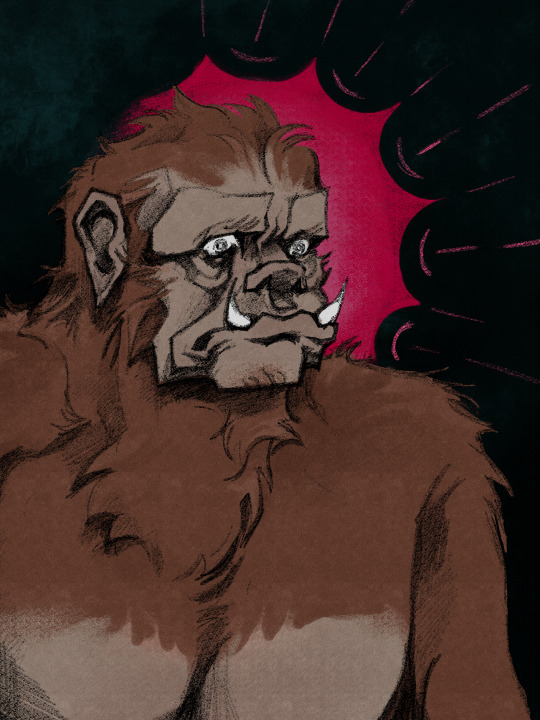

Benny now an animal, I knew AM would let him play.
(Stuff about my own version of pre-monkeyification Benny below the cut because i have too many thoughts on this)
It's kind of hard to make heads or tails of any of the ihnmaims characters since the cannons of the different adaptations contradict each other so much, so I reconciled my own version of events in my head as to what I think Benny was like pre monkeyfication. I tried to fit everything from the comic, game and book in though.
Benny was a very masculine guy, excelling in every sport, and despising everyone who did not live up to his standard of what it meant to be a strong man. All his life, he tried to embody this ideal, not only marrying and having two kids, but going on to join the military. When he became general, he was known amongst the soldiers as an authoritarian punitive leader, often abusing those below him to whip the weak ones into shape. His ideals were solidified under the pressure of the continuing third world war, instilling a kill or be killed mentality into him. Eventually, he came to the realization that he was gay. However, because this reality threatened to break apart the way he viewed the world and his masculinity. With the mounting pressures from a chain of losses and his own internal struggles, he reacted by overcompensating and becoming more brutal than ever, leading him to kill multiple of his own men. Returning from the Chinese American War, he developed a severe case of PTSD. Constantly making him feel as if his life was at stake, he found himself unable to show any weakness. He hid his own war crimes thoroughly, all the while continuing to receive accolades from his superiors for his tenure. He constantly felt the need to not only hide his crimes, but also his sexuality, making him paranoid that people would realize he was a fraud. This did not only put a strain on him, but also on his family.
AM specifically chose Benny, because he embodied the many ways in which humanity tore itself apart through war, constantly finding new methods to make their own existence miserable for an imagined ideal.
At first, Bennys presence among the survivors proved very useful. Out of all of them, he had the most experience in dangerous situations and a lot of physical strength. His wisdom and leadership helped them a great deal, eventually though, they would inevitably disappoint him. Falling into his old patterns of behavior, he would berate Nimdok the most for his obvious weakness, saying he was holding them back. With time, he did the same with Ellen, Ted and even Gorrister, which formed a rift between himself and all of them. He felt as if he could rely on no one but himself.
Still, his usefulness irked AM. He had gotten one over on him too many times, but this would make his coming defeat even more crushing. It started with his mental state. Paranoia had already slowly crept up on Benny, but when he was forced to relive his trauma, it spiraled out of control. Being starved, beaten and defeated, he started to lose his humanity. His egoism, distrust and brutality, all born out a desire for survival made him a nightmare for the others. AM found it amusing, how he had turned Benny into a parody of humanity and its worst aspects, seeing it fit to strip him of his last remaining bits of humaneness, breaking his body into the shape of an ape-thing.
His spirits were now completely broken, being reduced to a bumbling fool. Even though his shame mellowed him out, there were still occasional outbursts. Now ironically enough, he had become the survivors greatest liability. Luckily for him, the others pity him and keep him around, a kindness he likely wouldn't have awarded them.
(Also drawing a guy thats canonically supposed to look handsome while making him resemble a monkey is hard :,) )
#i have no mouth and i must scream#ihnmaims#benny ihnmaims#harlan ellison#artists on tumblr#own post
434 notes
·
View notes
Text
SFW Dragon of the East
NOTICE GN Lung Dragon / Eastern Dragon Hybrid Reader
CHARACTER Price X Reader
ADDITIONAL I don't mind Fem/Fem aligned readers reading but don't feel insulted/complain that I strictly don't do Fem reader, not my cuppa tea mate.
INSPIRATION @/Bluegiragi Monster AU on Twt and Tumblr & @/thegnomelord
NOTE I have tried my best to include many traditional aspects of the lung dragon in my own way, and will take any criticism if its not up to date to the history of the actual, lung dragon/chinese dragon culture, although I am asian, input is always perfect.
In the midst of the bustling 141 headquarters, you, had been their newest recruit. A Lung dragon—a different kind of dragon from his European heritage, Price noticed. And whilst there was quite the fascination of a different yet similar species, he couldn't help but find himself intrigued yet lucky. There was something about your calm demeanor and patience that caught Price's attention.
In most cases, dragons are considered fierce, strong, quick, easy to anger, and anything that isn't patient. And yet there you sat, your long, seemingly unscathed scales and beautifully fluffy tail laid lazily across your lap as you spoke to Soap. Not an ounce of anger or aggression to someone so close to you as the usual European dragon would be when first meeting new people.
Curiosity sparked, Price observed you, trying to understand your customs and ways, which seemed a bit different from what Price was used to. You had a knack for being seemingly the most grounded. You words flowed like water and your advice seemed endless. You didn't seem rookie, either, and he wondered for how long you had roamed the earth for, and your presence exuded a sense of tranquility, much like the calm after a rain shower.
Acknowledging their differences, Price aimed to show you his strengths—leadership, courage, and wisdom earned from experience as a way of perhaps, courting you. Testing you, seeing if you would rise to the challenge. He respected your background, trying to learn about the values and traditions that shaped the Lung dragon's approach to life.
Yet in your interactions, Price was surprised when you didnt go against anything he'd bring up to you, opting for agreeing and even adding to his plans, he was left dumbfounded, leaving him as he subtly expressed his admiration for your dedication to the team. While their cultural backgrounds differed, there was a mutual respect growing between them.
Ghost could only watch from a distance a smirk on his lips beneath his balaclava at the way Price's scales would shift as he spoke to you, the way he'd try to puff out his chest a little or even stretch his wings to prove the size of them.
Around the first month, Price noticed your fascination with pearls, large, almost black shiny pearls, he subtly tried to engage in your shared interest, albeit in his own way. He occasionally brought his jewels or rare treasures from his hoard in his office. Almost hoping you might reciprocate or rise to the occasion. When asked, you had called it a "Flaming pearl." Leaving him confused. Had you of blown flame into it? Was it something that was often kept warm? Yet your soft chuckle left him once again, in the dark.
His attempts at courting had backfired in a way, revealing your calm demeanor and willingness to foster understanding rather than competition.
Little had he knew that his attempts were seen by you more then he would have thought. Only smiling at his little attempts.
Slowly, Price began to realize that your approach to courting wasn't about winning or being superior but about mutual respect and cooperation. It dawned on him that your patience and willingness to aid him were gestures of camaraderie and a desire to build a connection rather than engage in a contest would be better. So he went for something softer. After all dragons could he as delicate or as rough as they wanted to.
The way your scales in certain parts would glow, to the way you formed clouds from your breath rather then breathed fire, the way you disappeared into water as if you were, water, made you all the more interesting. Watching even as you sparred, against someone like Soap, your fluid and quick movement, kept you from being hit easily.
In this realization, Price's approach to courting shifted. He began to appreciate your supportive nature, understanding that their connection wasn't about outdoing each other but about nurturing a bond that thrived on mutual respect and understanding, something that be was well familiar with.
Little did he know, that you wanted to court him back, a collection of finely polished pearls from the ocean had been building up in a glass case. Wrapped in a strong, seaweed bow.
The day you had given it to him was during a beach day with the 141, you were all having a late night barbecue. And you had given the case to him, the moonlight illuminating your figure and the warm fire lit up your face. You scales glowing in an intricate pattern. Soft and slow.
He accepted the gift, marveling at the beautifully, perfect yet imperfect pearls.
"Your actions aren't as hidden as you think." You joke, gently cupping his face, you feel his cheek warm up like a blaze, watching as Price turned to the side and coughed out a few puffs of smoke in embarrassment.
You were bad for his health, thats for sure. But with all the cigarettes hes used as a substitute for flame? He'd take you over any kind of drug.
#cod#cod mw2#male reader#john price#alistair writes ☕️#monster au#female reader#john price x male reader#john price x reader#john x reader#john price x female reader#call of duty#cod 141
366 notes
·
View notes
Text
What Should You Focus on in the Year of the Dragon?
According to Chinese Astrology, 2024 is the Year of the 🐉 Dragon 🐉!!! Meaning, this year is all about growth and development. This year is all about focusing on what will bring you happiness! What will bring you closer to your dreams. So, with that said…
Close your eyes and take a breath. In through your nose, out through your mouth. Keep doing this until all the tension leaves your body. Then, ask yourself the question of what you should focus on this year. Once you feel ready, open your eyes and allow yourself to be pulled to your card by your energy (it’s the one that you can’t stop going towards or looking at).
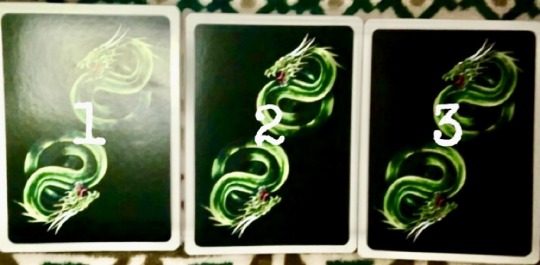
Pile 1
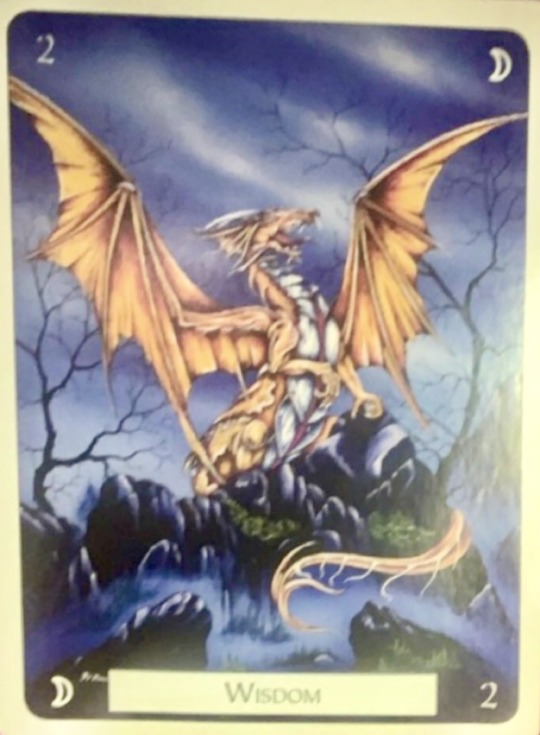
PILE 1
Your Card
Wisdom
Key Identifiers:
• Blue, White, and Gold may hold a significance
• Intuitive, Spiritually Awareness
• Purity, Innocence, Peace
• Communication
• Happiness after some difficulties
• Balance
• Harmony
• Possibly a LP 2
• Sagittarius, Libra, & Virgo Energies
If you’re feeling drawn to 2, you might want to give that a look-see too 😅🥰
May see the numbers: 222 and 444 a lot
This group may be the High Priestesses of this reading. You may focus on the future a lot, or read tarot cards or get help through tarot readings often.
I kind of get the feeling that this pile is having a lot of things come to light from the past, which is bringing you closer to peace and harmony, if you’re not in that energy yet.
I’m getting that maybe this group will be focusing on learning to look deeper within to figure out solutions to difficult situations or concerns that may look strange or confusing at first.
Pile 1, maybe you should consider taking some time out for self. So you can learn yourself better and get a healthier mindset to tackle any issues that come your way. You can’t close your eyes to the things you don’t want to deal with from your past, it’d only cause more confusion and delays for you in the long run. It’s time to figure out who and what you want and put forth the effort to change what you didn’t like from the past.
🐉🐉🐉🐉🐉🐉🐉🐉🐉🐉🐉🐉🐉🐉🐉🐉
PILE 2
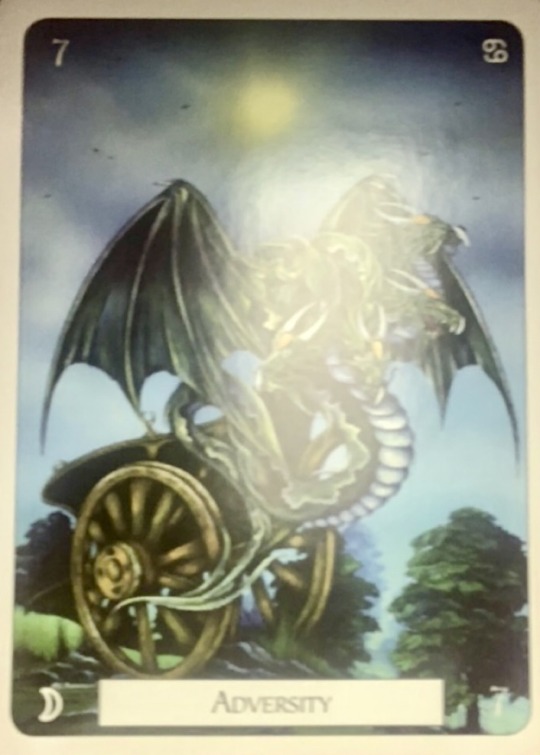
PILE 2
Your Card
Adversity
Key Identifiers:
• Material possessions, Earthly things
• Grounding
• Confusion
• Communication
• Masculine Energy
• Healing
• Secrets/ Lies coming to Light
• Possibly a LP 7
• Growth
• Water signs (esp. Cancer), Capricorn, Virgo energy
• Moving On, Change
• Colors of Significance: Green and Blue, Brown
• Healers, Teachers, & Spiritual Gurus
Pile 2, y’all are giving me… Chariot energy. Have y’all been feeling confused about life or about a certain situation, people, place, or thing? Are you feeling an urgent pull to move forwards on your journey but may be having some fears or anxiety?
Y’all may be going through a lot of changes this year. Things may come to light (secrets and/or lies) and you may feel the need to cut some people off this year. I feel that your ultimate goal this year would be growing and find balance within one’s life.
This pile may be focusing on security this year and on healing from addictions or unhealthy past ways or people that block us from opening oneself up to new experiences and connections. This pile will be focusing on cutting off things and people that do not serve you, and/or maybe some of you have already started this process. If so, congratulations. You’re already doing what you need to do to move forward in life. Keep it up!
Also, one last tidbit, I feel like y’all will be working on healing the heart chakra and abundance. This pile may have some money coming in. So stay focused and keep growing!
🐉🐉🐉🐉🐉🐉🐉🐉🐉🐉🐉🐉🐉🐉🐉🐉
PILE 3
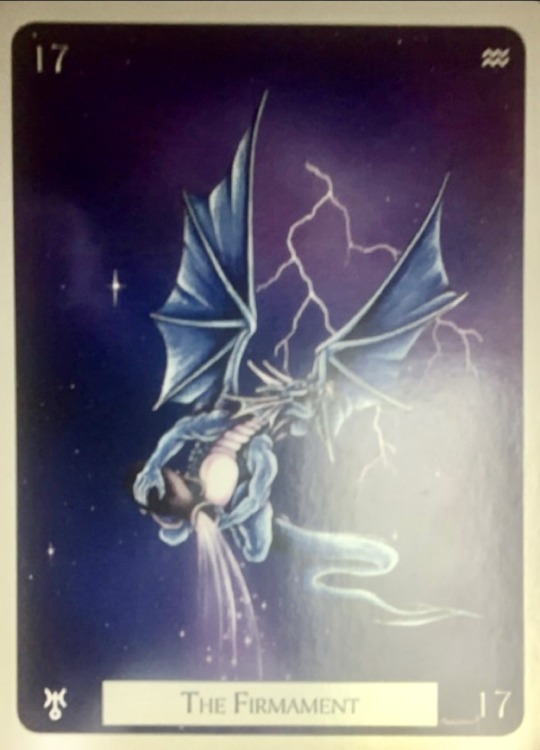
PILE 3
Your Card
The Firmament
Key Identifiers:
• Colors of Significance: Blue, Purple, Black, & White
• Purity, Innocence, Truth, Clarity
• Communication
• Intuitive, Enlightened
• Epiphanies, Sudden Realizations; etc
• Recognition, Star Energy
• Aquarius, Uranus, Scorpio, Moon energy
• Creative
• Manifesting
• Impulsiveness/ Eager
• Strong faith/ Spirituality
May be seeing 9s (999) and 3s (333)
Pile 3, the energy for this pile!!! I’m loving it! This pile is giving me Star energy, which is also Aquarius energy. This pile is full of hope and faith. I feel that y’all are pretty balanced in your spirituality and the materialistic world. Or at least, that’s what you’re gonna be focusing on this year.
I can see that maybe some of you in this pile may have had a hard time getting motivated or staying inspired. Maybe some of you were frustrated in the past, and it caused you to feel stagnant or creatively blocked? Well, this year, that’s gonna change.
This pile will be focusing on expanding their mindset to a more hopeful one. You will be coming to the realization that “The World Is Your Oyster.” You can do whatever you put your mind to. You may feel or see that you have many opportunities available to you or coming to you. The goal for this pile is to work on staying hopeful while finding and keeping the balance between the spiritual and material world. Pile 3, you will be setting yourself free of limiting mindsets so you can truly be free. And who knows, maybe keeping the hope/faith will help manifest a wish that you’ve been looking forward to.
🕊️ Blessings 🕊️
Discord Server:
🕊️🥰 I offer tarot/ oracle/ fortune telling readings and reiki healings, aura cleansing, and energy shields for those that are interested 🥰 I hope to be able to offer more than just those services soon, such as rune readings, planetary seals, herbs, rituals, etc. Bless! 🫶🏽🕊️
Shop Website coming soon 🥰
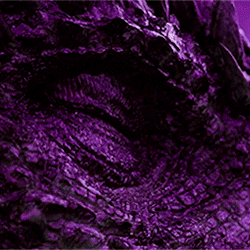


#tarot reading#pick a card#pick a pile#divination#spiritual#tarot#intuitive readings#pick a photo#discord server#spirtuality#free tarot readings#tarotcommunity#Cupid’s Divine Arrow#CDA#blessed
199 notes
·
View notes
Note
So I came up with this conclusion after analyzing jingrenheng trio in your writing, which include unconventional darlings that might suit them.
Dan Feng: I honestly can see a scholar!darling suiting him. Historical-wise the women around Chinese emperors were more than pretty faces, they're smart because the selection requires virtue and knowledge of philosophies as well. So a scholar darling will be good for his image, and you're also less likely to be bullied by high-ranking vidyadharas because you're educated. It's also more likely that Dan Feng will listen to your input because of your education, but he's the one making the final decision duh.
Blade: I've seen Blade with darling who are on the victim side, like him kidnapping Dan Heng's darling and so on. But considering how he's a Stellaron Hunter I can see him with a darling who's powerful BUT is seen as a weapon by people. As in powerful enough to destroy but doesn't exactly rebel a lot; being used to be directed by powerful people. Maybe you're a powerful thing fully controlled by a planet's government that the Stellaron Hunters happened to have a mission on and Kafka offered for you to join the hunters because your powers are too good to waste.
Jingyuan: I've also seen Jingyuan with a darling who's more vulnerable than him, so how about a darling who's a financially powerful ally to him? Imagine that during a long expedition to defeat barbaric enemies that are a threat to the Luofu, one of the stops was this planet under the Luofu enemies' occupation; your planet. You, knowing how barbaric those enemies were and how the weaker cloud knights would definitely be brutally harmed took in a lot of members of the cloud knights inside your estate. That also included an injured Jingyuan. So this kind of darling has the upper hand because Jingyuan owed her the lives of the cloud knights, he can't just do as he likes.
never thought that someone would use the word "analysis" for my hsr stuff, thank you very much!! these are indeed the types of readers I have not considered👀
Dan Feng: If you were a scholar before you met him, Dan Feng would have heard about your reputation from people. Dancing on the path of "Erudition", you pursue knowledge and strategy. Maybe you’ve published some research?
Dan Feng is just traditional, which definitely does not mean that he cannot accept his spouse being smart and accomplished. He appreciates your wisdom and discusses history, culture, and Aeons with you. It's like discovering a treasure, he always finds surprises. In this case, Dan Feng respects your opinion and imagines how smart the dragon cub will be.
Blade: The companion type Darling is an equal to Blade. He is the type of person who respects his companions. Even in a state of mental breakdown, Blade could observe Kafka's sadness. From his first comment on Kafka, we can tell that Blade has a soft and gentle heart.
"Listen, Bladie, loosen up." "Listen, don't think about anything at all." He nodded. The woman walked to his side, smiling. Yet he thought her smile looked very sad. "Maybe someone left her before they could listen to everything she had to say," he thought.
But if you have been abused as a "weapon" before, Blade will treat you more gently and carefully. If those who have abused you are not on the script, Blade will support some… more extreme plans to destroy those people.
Jing Yuan: 😹Oh, you can see what a painful experience this is for Jing Yuan. He is grateful to you for saving those Cloud Knights and for being an ally. You are too sweet for him. General sometimes wanted to pull you into his lap, but those favors stopped him. He can't do this to you…at least not yet. That would be very ungrateful of him. He's pursuing you in a decent way - you might think it's still too pushy though.
68 notes
·
View notes
Text
CALL ME BY FIRE (SEASON 3): Participation of Jeff Satur
Now this has been the most uncanny crossover I never saw coming. A show I've been watching for years, and my introduction to thai BL which initially put Jeff's name on my radar. Here's some context for any fans who have heard of his participation and want to know more.
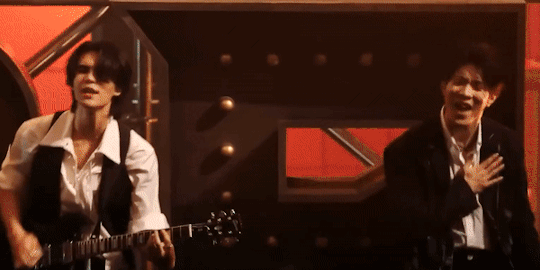

Call Me by Fire is a mainland Chinese TV competition show. They invite 33 established male celebrities with the goal to form an ultimate "boy band" by the show's conclusion. What tends to be the incredible pulling factor is they'll invite a combination of singers, musicians, actors, dancers, idols, presenters - incredibly well known faces in the industry - many of them hugely respected OGs in their field. (The demographic is usually late 20s+) so there's an intentional sense of maturity, experience and wisdom amongst the ensemble. The emphasis isn't really on forming this 'fictional' boy band, it acts as a mechanism for us to get more up close and personal with these artists. Allowing viewers to appreciate their creative genius, as well as who they are as people.
This show came as a spin off of another series 'Sisters Who Make Waves' which has the exact same premise but for female celebrities. Because it became such an instant hit, they made a male version shortly after.

As a Chinese speaker, I've been watching both shows since they started in 2020. Both are in their third season (with Call Me by Fire broadcasting right now). This year they've decided to include more participants (of mainly Chinese/Asian descent) from America, Korea, Japan, Vietnam and Thailand - along with the majority from China, Hong Kong and Taiwan.
Why I find this show both incredibly entertaining and compelling is because you get to watch spectacular collaborations between some of the most talented artists of this generation, and witness them embark on a journey of brotherhood through a shared love for performance (they live, work and perform together for the duration of the show). For me, theres also a massive nostalgia factor, because a large portion of these artists will be people I grew up watching.
There will be a lot of new attention on this show due to the Jeff's involvement (whose dubbed ‘Luo Jie Fu’ in Chinese). We’re only on Episode 2, and he's already making a huge impression, earning one of two MVPs spots after their first live performance - his group ranking 2nd out of 8, and his personal ranking being 7th overall (based on the live audience popularity vote).
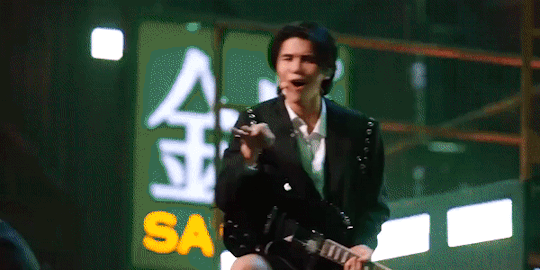

The show is uploaded onto Youtube in full (post-broadcast on a Saturday). Just to warn you, the episodes are usually very, very long (sometimes between 2-3 hours in total), but I personally really enjoy that. There are English subtitles but the translations don’t always capture the nuances.
Jeff is doing a superb job so far and he's very brave for taking this on. He brings something distinctly unique in his showmanship and personal sense of style. It's a daunting prospect for someone who can't speak or understand Chinese, but the other brothers are doing their best to help him feel as welcome and settled in as possible.
If anyone has any questions about the show or clips featuring Jeff they'd like to know more about, I'm more than happy to translate.
#call me by fire#call me by fire s3#jeff satur#chinese tv#how much charisma does jeff have?#YES#yes to everything basically#the boy was born to perform
136 notes
·
View notes
Text

Mysterious Kingdom of Shambhala
Shambhala, which is a Sanskrit word meaning “place of peace” or “place of silence,” is a mythical paradise spoken of in ancient texts, including the Kalachakra Tantra and the ancient scriptures of the Zhang Zhung culture which predated Tibetan Buddhism in western Tibet. According to legend, it is a land where only the pure of heart can live, meaning those who have achieved enlightenment. Accordingly, the mythical Buddhist kingdom of Shambhala is a place where love and wisdom reign and where people are immune to suffering, want or old age.
Answering the question “what is Shambhala?” is no easy feat. Shambhala is said to be the land of a thousand names. It has been called the Forbidden Land, the Land of White Waters, Land of Radiant Spirits, Land of Living Fire, Land of the Living Gods and even the Land of Wonders.
The Hindus call it Aryavartha (meaning “The Land of the Worthy Ones”); the Chinese know it as Hsi Tien, the Western Paradise of Hsi Wang Mu; and to the Russian Old Believers, it is known as Belovoyde. But throughout Asia, it is best known by its Sanskrit name, Shambhala, Shamballa, or Shangri-la.
The Legend of the Mythical Land of Shambhala
The legend of Shambhala is said to date back thousands of years, and reference to the mythical land can be found in various ancient texts. The Bön scriptures speak of a closely related land called Olmolungring. Hindu texts such as Vishnu Purana mention Shambhala as the birth place of Kalki, the final incarnation of Vishnu who believers claim will usher in a new Golden Age. The Buddhist myth of Shambhala is an adaptation of the earlier Hindu myth.
However, the text in which Shambhala is first discussed extensively is the Kalachakra. The Kalachakra refers to a complex and advanced esoteric teaching and practice in Tibetan Buddhism. Shakyamuni Buddha is said to have taught the Kalachakra on request of King Suchandra of Shambhala.
As with many concepts in the Kalachakra, the idea of Shambhala is said to have outer, inner, and alternative meanings. This makes it complicated for the uninitiated to truly understand what Shambhala really is. The outer meaning understands Shambhala to exist as a physical place, although only individuals with the appropriate karma can reach it and experience it as such.
The inner and alternative meanings refer to subtler understandings of what Shambhala represents in terms of one's own body and mind (inner), and during meditative practice (alternative). These two types of symbolic explanations are generally passed on orally from teacher to student.
As the 14th Dalai Lama noted during the 1985 Kalachakra initiation in Bodhgaya, Shambhala is not an ordinary country:
Although those with special affiliation may actually be able to go there through their karmic connection, nevertheless it is not a physical place that we can actually find. We can only say that it is a pure land, a pure land in the human realm. And unless one has the merit and the actual karmic association, one cannot actually arrive there.
Shambhala by Talon Abraxas
22 notes
·
View notes
Text
Zhu Yilong: The Longest Journey 朱一龙:最漫长的路
EN translation of Zhu Yilong's Shang Cheng Shi Dec 2023 Issue Feature Interview by wenella

The sun slowly sets and the evening glow over the Gobi Desert constantly changes colours from blue, purple, pink to yellow. The temperature drops gradually. The dim light casts silhouettes and Zhu Yilong, in the distance, is leading a camel across the undulating sand dunes. In recent years, Zhu Yilong has often visited the desert as part of his travels. But this time, he is here at sunset.
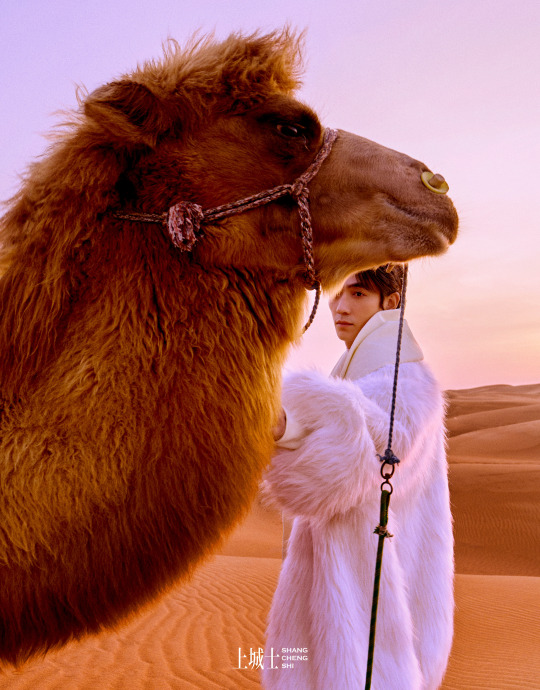
The boundless desert sparks contemplation about the fleeting years and the unpredictability of life. The vastness is rather overwhelming for urbanites, but the camel train walking alongside Zhu Yilong disrupts this immense sense of solitude. Soon, Zhu Yilong gains the trust of one of the camels. "We were strangers at first, but gradually became close; it’s just like making a new friend," he says. The camel lets down its guard after 15 minutes; it looks calm as Zhu Yilong leans against it. "I could feel that the camel is relaxed when I touched it," he remarks after returning with the camel caravan. Then, he leads the camel into the desert once again towards the focal point of the shoot. “I’m off!” he bids farewell to the staff before embarking on this brief "journey" with his new friend.
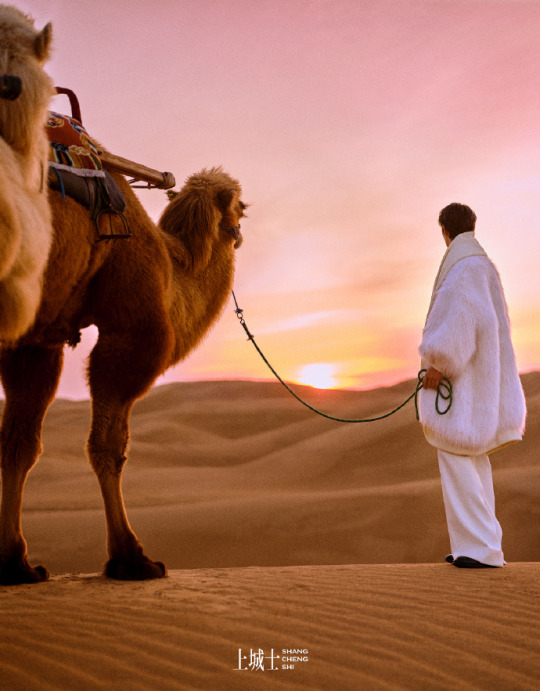
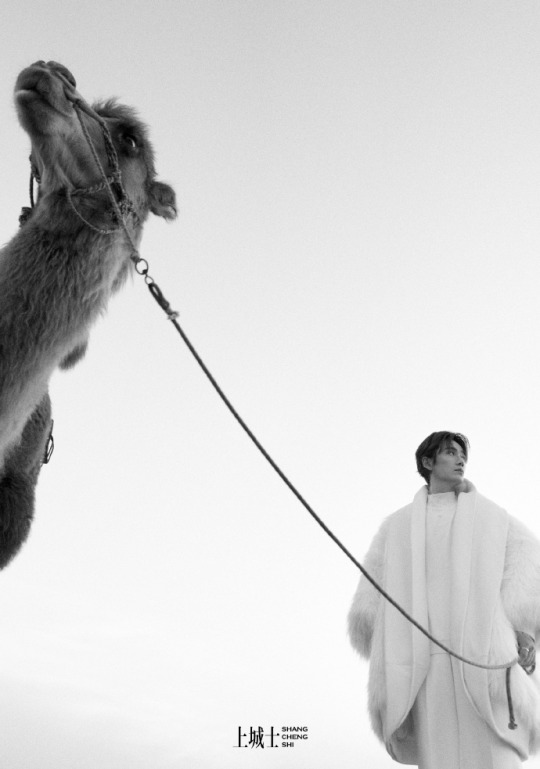

Earlier in the day, Zhu Yilong listened to musicians perform the ancient Chinese melody "Su Wu Mu Yang" on the xun (a Chinese wind instrument) in the Shikouzi Canyon. This melancholic melody, with its simple tune, sounds like a lament that is characterized by the deep, dignified, and steady tones of the xun. The rocky and deep canyon is only half a meter wide at its narrowest point and enhances the poignant and majestic atmosphere—both in the music and in the hearts of those present. Captivated by the music, Zhu Yilong imagined the tragic life of Su Wu.
Noticing that Zhu Yilong was piqued by the music, the musician handed him a xun. Zhu Yilong, who can play the hulusi (a gourd flute), attempted to play the xun using the hulusi technique but couldn't produce any sound. The teacher offered him guidance and said, "Cover all the holes, place it (the blowhole) beneath your lips, don't use force, blow gently." Using the new approach, Zhu Yilong’s xun finally made a sound, and a new lament echoed through the narrow canyon.
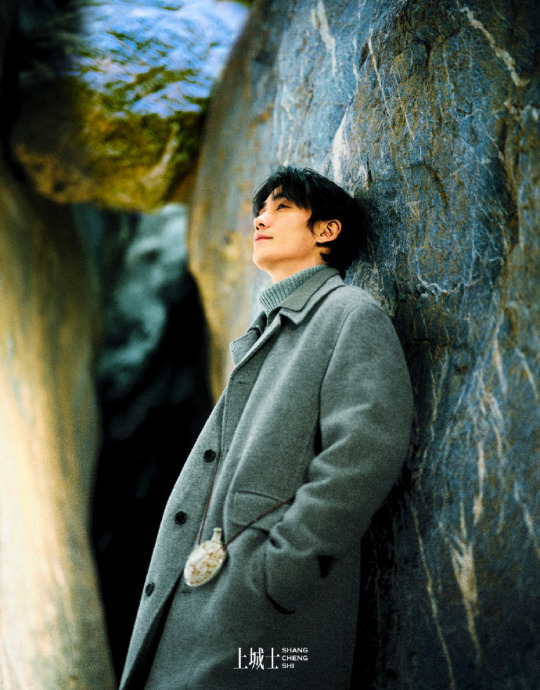
We initially planned for Zhu Yilong to do a photoshoot with the sheepskin raft by the shore. However, driven by his curiosity about the life wisdom of ancients and his desire to seize the rare opportunity to try the sheepskin raft, Zhu Yilong jumped onto the raft voluntarily. As the raft drifted away from the shore, Zhu Yilong waved to everyone and once again, cheerfully said, “I'm off!'"

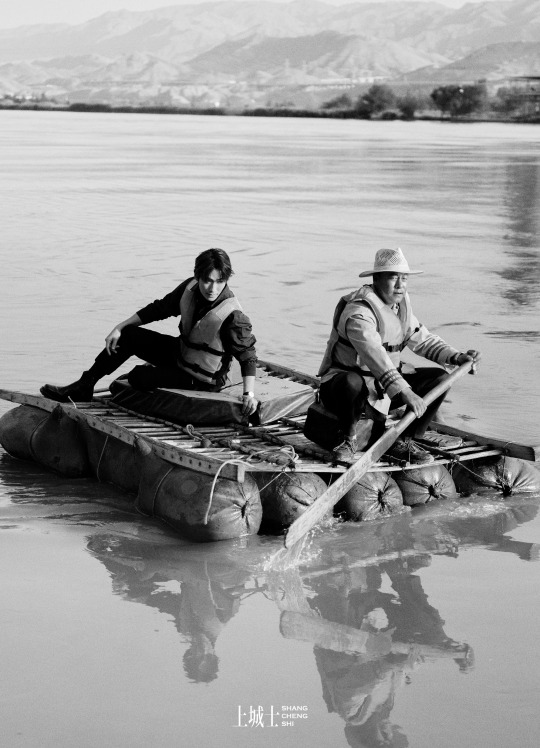
The crew is used to his uncontrollable impulse for fun. "I often have the urge to travel or try something fun.” However, Zhu Yilong hasn't had time to travel recently. Whenever he does, it’s usually for work. "It's a business trip." He recalls his recent trip to Africa with WWF to promote wildlife conservation efforts. He got up close to lions, leopards, and elephants in the Maasai Mara National Park. In a completely natural environment, mankind is in awe of everything.

Zhu Yilong chooses his travel destinations based on his mood. "If I feel like visiting a lively place, I'll pick a city to try different cuisines and observe different people. If I want to go somewhere quiet, I'll head to the mountains or the seaside. My decision is based on my mood at that moment."

It is rare for Zhu Yilong to travel for leisure these days. Often, he uses his travel to “experience life.”
Experiencing life is mandatory for actors. Zhu Yilong is adept at observation and at bridging the gap with strangers. He believes that observation begins by getting close to the other person. When portraying Mo Sanmei, he visited a funeral parlour to experience life. To play the role of Ma Zhe well, he spent 1.5 months experiencing life in a police station. His observations shaped his characters. Zhu Yilong formed his first impression of Mo Sanmei when he caught a glimpse of a guy in a funeral parlour parking lot, who sported a crew cut and was leaning on the steering wheel, listening to pop songs, smoking, and selling funeral supplies. Likewise, a photo of a serious-looking young Yu Hua helped him to shape Ma Zhe. Through refining the abstract, he combines different individuals to form one person.
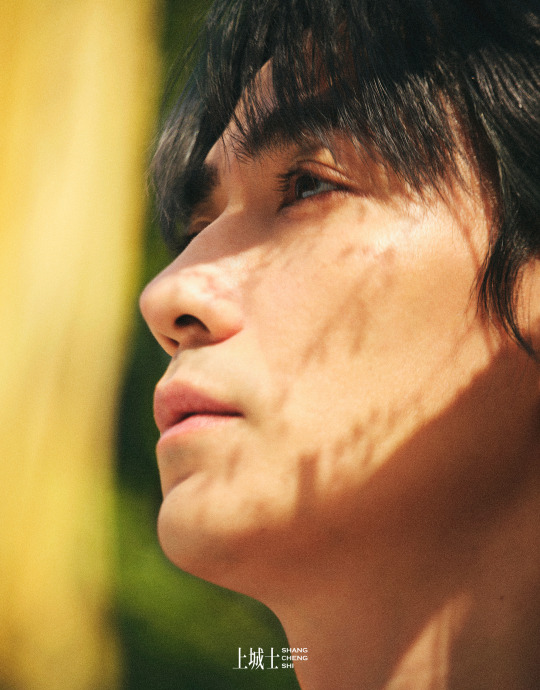

When Zhu Yilong is filming, he makes it a habit to immerse himself entirely in his character. He will not resist any emotion or mental state. Perhaps by incorporating all the anger, ferocity and struggles into his characters, the Zhu Yilong who we see in real life always appears calm, gentle, and humble. "Think about it, there are so many 'scary' scenes in the drama. One might never encounter such situations in their entire life." He will fully commit himself to his character till the film wraps, and then he will separate himself from his character. "I always require myself to quickly separate from my character once I wrap. I want to let my character remain in that period and in those visual images." He separates himself from his character by changing his appearance. "It is a psychological reminder. Once you are removed from a certain environment and your appearance changes, you will separate yourself from the character naturally."
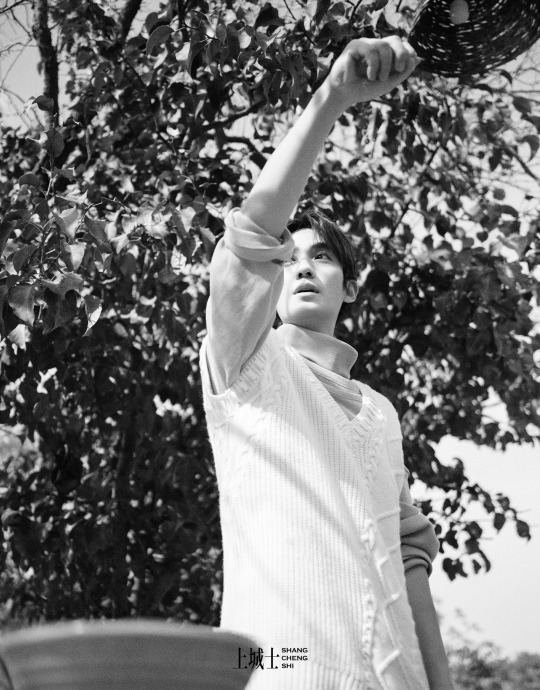
When he was younger and had fewer life experiences, Zhu Yilong would actively observe people to gain insights quickly even when he was relaxing. Now, he has started to restrain this innate urge to observe the world and instead, focuses more on the present moment, his immediate surroundings, and his feelings. "I am less purposeful now. I will not be in a hurry to conduct observations and apply what I see in my role. Instead, I try to find ways to integrate myself into the environment, to relax, and to feel the difference. I realised that the results are more specific and vivid this way. I no longer try to do this deliberately in my life or during my travels; I just want to try my best to experience and feel."
When one is less observant of the external world, they will become more aware of their inner self. People are always busy, and it is actually challenging for one to delve into their fleeting thoughts. Now, Zhu Yilong will deliberately pause and organize the thoughts in his mind sometimes. "These things can actually be applied to the characters," he says.
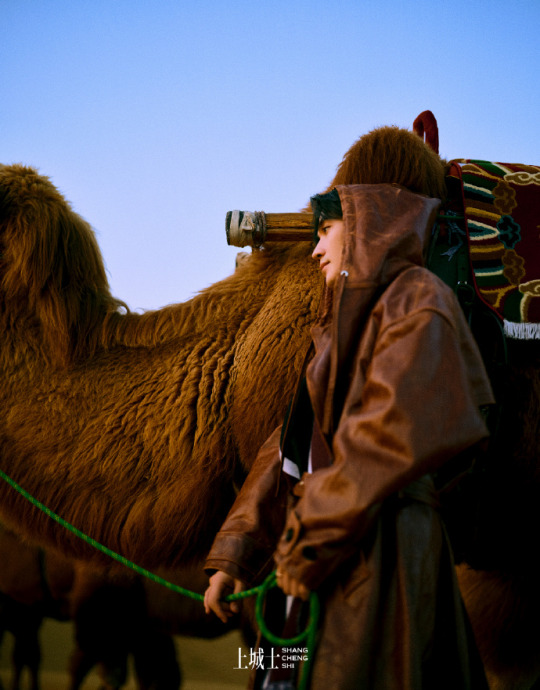
The self is the first and most profound subject for understanding the world. A person can only have a deeper understanding of others and the world if he understands himself well. Human nature is profound, and the self is ever-changing, complex, and elusive; this path of self-exploration is the longest journey.
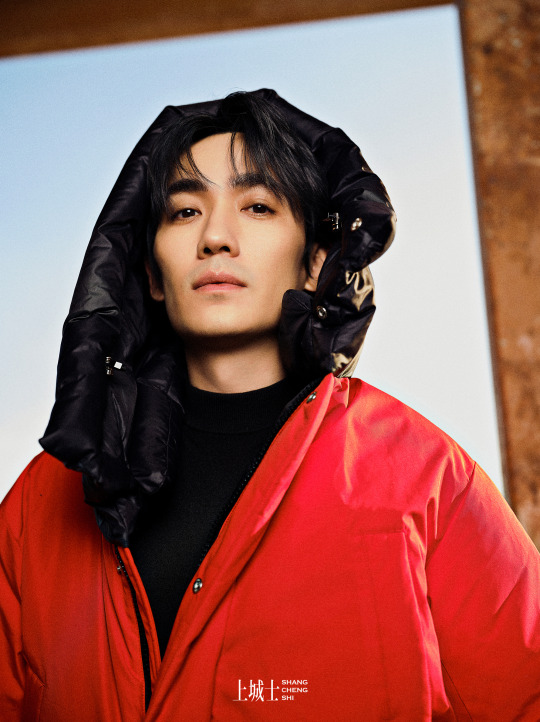
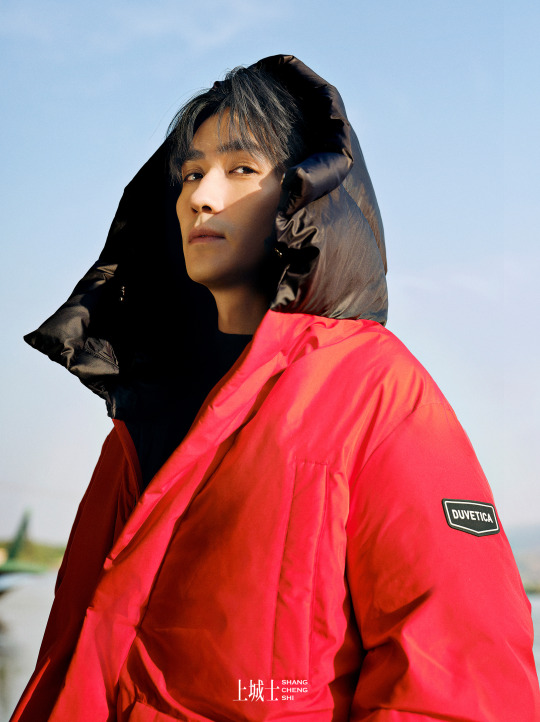
In recent years, Zhu Yilong has become more acutely aware of the passage of time. On the day of our photoshoot, he said that he wished time could linger.
As a student, he felt that time was passing too slowly and eagerly awaited the school bell to ring every day. However, once he started to work—a job that he loved fortunately—every day seemed to pass too quickly. A film starts and wraps; an actor can finish 1 or 2 projects in a year. Belonging to a profession that quantifies time and results might intensify his anxiety. However, it may not be necessary to overcome this anxiety as his curiousity that has driven him has never diminished. Zhu Yilong remains curious about the world. He still yearns to explore and embark on adventures. "It won’t change in the next ten, twenty, thirty years," Zhu Yilong knows that this belief will stay with him.
31 notes
·
View notes
Text
The Illustrious Client pt 3
Had a busy weekend, so I'm one behind again, but where were we?
A hypnotised woman, a man so evil he wants everyone to know about it and he keeps a special scrapbook of his favourite evil moments for him to read in bed at night when he can't sleep. My favourite character is probably not going to be in it again, seeing as she failed to convince the guy's latest victim that he's a murdering arsehole, but I really hope she gets to stamp his face in with her boot. Y'know. As a treat.
Oh, and then someone tried to kill Holmes. There was a cliffhanger. I almost forgot about that.
The Illustrious Client on whose behalf Sherlock Holmes was consulted was anxious to prevent the marriage of the young, rich and beautiful Miss Violet de Merville to Baron Gruner, an unscrupulous adventurer.
Given some of the descriptions Watson has given of perfectly nice clients, I feel like 'unscrupulous adventurer' is such a milquetoast way of putting this. And also rather offensive to adventurers.

“I'm a bit of a single-stick expert, as you know. I took most of them on my guard. It was the second man that was too much for me.”
See, this is why I don't get why everyone insists on Watson being the action man of the pair. Holmes is out there whacking people with sticks. Watson occasionally shoots a dog.
No, I'm never going to be over that.
"They'll come to you for news. Put it on thick, Watson. Lucky if I live the week out—concussion—delirium—what you like! You can't overdo it.”
This is a definite step up from The Dying Detective where Holmes was convinced that if Watson knew he wasn't dying, he'd never be able to convince anyone of it. Has Watson's acting got better or has Holmes just realised that pretending to be dying is a dick move? Something tells me it isn't the first option. I don't think it's the second, either, if I'm honest. I feel like Holmes needs Watson to do something. But still, not lying to your best friend about dying. So proud of you.

“Yes. Tell Shinwell Johnson to get that girl out of the way. Those beauties will be after her now."
If anything bad happens to Kitty, I riot.
He pushed to an extreme the axiom that the only safe plotter was he who plotted alone.
Even so, he's still doing way better than he used to. We're all very proud of him.
It was simply that among the passengers on the Cunard boat Ruritania, starting from Liverpool on Friday, was the Baron Adelbert Gruner, who had some important financial business to settle in the States before his impending wedding to Miss Violet de Merville...
Apparently it was almost a week to get to the States on a liner in those days, which is less time than I thought, but also quite a while to spend travelling (2 weeks, there and back) right before your wedding. The wedding is not that imminent, I guess.
"Now, Watson, I want you to do something for me.” “I am here to be used, Holmes.”
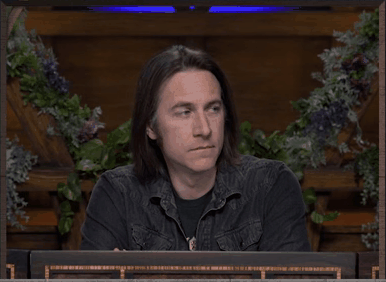
“Well, then, spend the next twenty-four hours in an intensive study of Chinese pottery.” He gave no explanations and I asked for none. By long experience I had learned the wisdom of obedience.
On the one hand, this also shows growth, on the other, blindly following Holmes' instructions seems like a terrible idea in so. many. ways. But y'know, whatever floats their boats. Ours not to kink shame.
I was sucking in knowledge and committing names to memory. There I learned of the hall-marks of the great artist-decorators, of the mystery of cyclical dates, the marks of the Hung-wu and the beauties of the Yung-lo, the writings of Tang-ying, and the glories of the primitive period of the Sung and the Yuan.
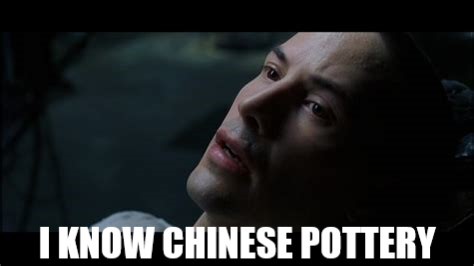
“It needs careful handling, Watson. This is the real egg-shell pottery of the Ming dynasty. No finer piece ever passed through Christie's. A complete set of this would be worth a king's ransom..."
Will the priceless historic china survive? That's the real question.
"You may as well be a medical man, since that is a part which you can play without duplicity. You are a collector, this set has come your way, you have heard of the Baron's interest in the subject, and you are not averse to selling at a price.”
OK. okayokayokayokayokay. No.
If this guy knows who Holmes is. Then he should, therefore, know who Watson is, too. We have even had, in this very story, evidence that supports that because the colonel (whose name I can't remember right now) was like 'yes, of course Dr Watson should be involved toodle pip." (I added the toodle pip part, but the rest was accurate enough.)
So surely the guy who arranged for Holmes to be murdered - who is apparently tracking down Kitty to murder her, too - surely he should know who Watson is. Therefore either this is a double bluff and Holmes is knowingly sending Watson into a danger that has already tried to claim his own life or he doesn't think that his opponent is smart enough to connect his enemy to their best friend who writes about them frequently and who has been visiting him daily since the attack.
If he turns out to be right and the baron doesn't recognise Watson immediately, I will be further annoyed at his incompetence.
On the same evening, with the precious saucer in my hand and the card of Dr. Hill Barton in my pocket, I set off on my own adventure.
Oh really? Like... an adventurer, would you say?
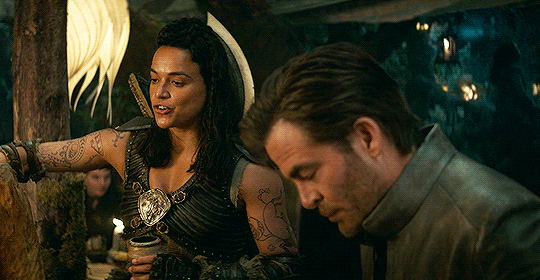
The place had been built by a South African gold king in the days of the great boom, and the long, low house with the turrets at the corners, though an architectural nightmare, was imposing in its size and solidity.
Glad to see Watson turning his scathing judgements to architecture as well as people. It was... it was a very solid building. It had that going for it.
He was certainly a remarkably handsome man. His European reputation for beauty was fully deserved. In figure he was not more than of middle size, but was built upon graceful and active lines. His face was swarthy, almost Oriental, with large, dark, languorous eyes which might easily hold an irresistible fascination for women. His hair and moustache were raven black, the latter short, pointed, and carefully waxed. His features were regular and pleasing, save only his straight, thin-lipped mouth. If ever I saw a murderer's mouth it was there—a cruel, hard gash in the face, compressed, inexorable, and terrible. He was ill-advised to train his moustache away from it, for it was Nature's danger-signal, set as a warning to his victims.
Oh my god. Watson. Watson. Quite being so horny on main. I am begging you. Stop ogling the man. And he can't help the way his moustache is away from his mouth - it's all the twirling.
"I would ask you what do you know of the Emperor Shomu and how do you associate him with the Shoso-in near Nara? Dear me, does that puzzle you? Tell me a little about the Northern Wei dynasty and its place in the history of ceramics.” I sprang from my chair in simulated anger.
Watson. Watson. My dude. My man. My good sir. WHAT THE ACTUAL FUCK was the point of you learning everything there is to know about Chinese pottery if you're not even going to bother to answer his motherfucking questions? What even is this? What was the point? WHY?
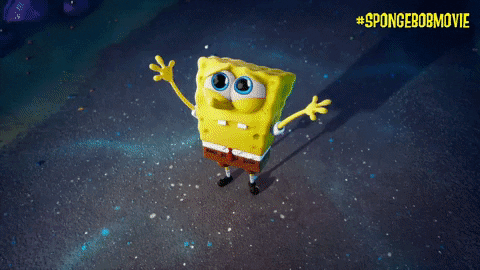
I mean, I'm pretty sure he knew who you were from the moment you sent the letter but even so. Even so! I can't get annoyed about him not committing to the bit when you're out here not even trying to commit to any of it.
Two steps took me to the open door, and my mind will ever carry a clear picture of the scene within. The window leading out to the garden was wide open. Beside it, looking like some terrible ghost, his head girt with bloody bandages, his face drawn and white, stood Sherlock Holmes.
Well, I was right. It was a double bluff. Watson was the distraction, cool cool. He was rubbish at it, but at least Holmes knew he was going to fail.
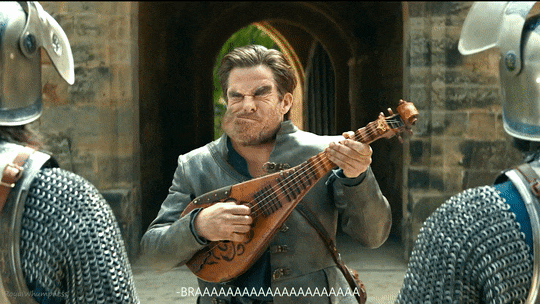
An arm—a woman's arm—shot out from among the leaves. At the same instant the Baron uttered a horrible cry—a yell which will always ring in my memory. He clapped his two hands to his face and rushed round the room, beating his head horribly against the walls. Then he fell upon the carpet, rolling and writhing, while scream after scream resounded through the house.
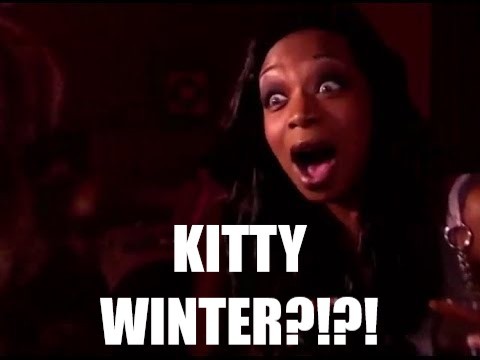
The features which I had admired a few minutes before were now like some beautiful painting over which the artist has passed a wet and foul sponge.
So that's why you went on about how hot he was. For the contrast. Gotcha.
Obviously this is terrible and throwing acid in people's faces is awful and horrible etc.
On the other hand, I support Kitty Winter and she's never done anything wrong ever in her life.
"It was that hell-cat, Kitty Winter!”

“It is his love diary?”
You say that like it's a normal thing.
???
"I knew I had only a few minutes in which to act, for my time was limited by your knowledge of Chinese pottery."
Holmes' perennial lack of faith in Watson's abilities is as sad as it is earned.
But he didn't even use his knowledge of Chinese pottery. He didn't even try.
“But if these injuries are as terrible as Dr. Watson describes, then surely our purpose of thwarting the marriage is sufficiently gained without the use of this horrible book.”
Wow, you think very little of Violet. I also think very little of her, but honestly, I'm pretty sure this isn't a deal breaker for her. Just say you think she's shallow and fickle, why don't you?
The same paper had the first police-court hearing of the proceedings against Miss Kitty Winter on the grave charge of vitriol-throwing. Such extenuating circumstances came out in the trial that the sentence, as will be remembered, was the lowest that was possible for such an offence.
Good for her.
...when an object is good and a client is sufficiently illustrious, even the rigid British law becomes human and elastic.
YAY! CORRUPTION!!
🥳🥳🥳
What a weird note to end it on. But the day was saved, I guess. Weirdly as it was. Violet de Merville presumably went on to continue to be a supercilious nightmare of a woman and Baron Adelbert Gruner was punished with *checks notes* disfigurement and blindness... so I guess that's a happy ending?
idek.
I'm glad Kitty got to fuck him up, though. That was very satisfying.
20 notes
·
View notes
Text
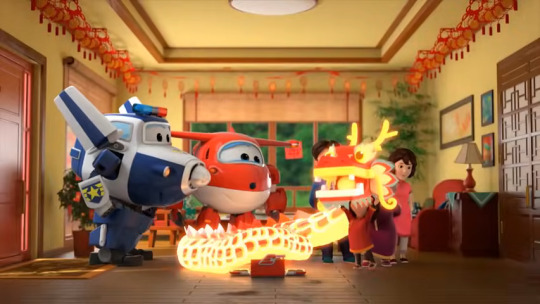
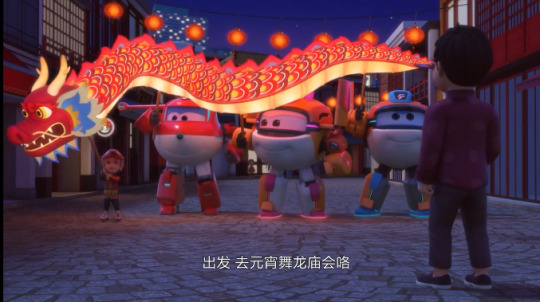
Traditions and Events: The Dragon Dance - China
The Dragon Dance (local name being 舞龍, or wǔ lóng) is a traditionnal and ancient performal dance practiced in Chinese culture, as the same way as the Lion Dance (more infos about it there), it is more often see during festivities, like the Lunar New Year. This dance is performed by a team of expert dancers, manipulating a giant dragon figure, the dance team simulates the imagined movements of this river spirit in a sinuous, undulating manner.
The dragon dance is, as said earlier, often performed during Chinese New Year. Chinese dragon is an important symbol of China's culture, and they are believed to bring good luck to people, therefore the longer the dragon is in the dance, the more luck it will bring to the community. The dragons are believed to possess qualities that include great power, dignity, fertility, wisdom and auspiciousness. The appearance of a dragon is both fearsome and bold but it has a benevolent disposition, and it was an emblem to represent imperial authority. The movements in a performance traditionally symbolize the power and dignity of the dragon.
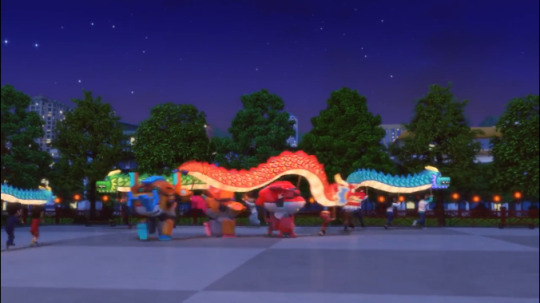
The origin of the Dragon Dance was most set during the Han Dynasty, were multiples texts described different form of dances, mostly associated with rain. According to a Han dynasty texts, these rituals was made to call two dragon deities: Yinglong and Shenlong, who each one bring rain and wind for the people.
There is also others form of dances involving these creatures, more as a popular and entertainment form. One of theses examples is the Baixi (百戲), when there are dancers called "mime people" dressed up as various creatures, including the dragon, and also a fish-dragon creature, mentionned in those dances. However, theses Ancient dances does not reflect the modern dragon Dance, stated in the illustration stones from the Han period.
Objects like dragon lanterns (龍燈) and figures are also disposed for the dance preparations, the lanterns are carried long the path the dance is mostly held.
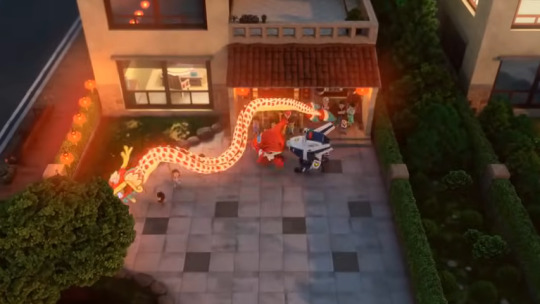
The dragon is a long serpentine body formed of a number of sections on poles, with a dragon head and a tail. It is assembled by joining the series of hoops on each section and attaching the ornamental head and tail pieces at the ends. Traditionally, dragons were constructed of wood, with bamboo hoops on the inside and covered with a rich fabric, however in the modern era lighter materials such as aluminium and plastics have replaced the wood and heavy material.
The normal length and size of the body recommended for the dragon is 34 metres (110 ft) and is divided into nine major sections. The distance of each minor (rib-like) section is 35 cm (14 in) apart; therefore, the body has 81 rings. Many may also be up to 15 sections long, and some dragons are as long as 46 sections. Occasionally, dragons with far more sections may be constructed in Chinese communities around the world to produce the longest dragon possible, since part of the myth of the dragon is that the longer the creature, the more luck it will bring.
Historically the dragon dance may be performed in a variety of ways with different types and colours of dragon. Green is sometimes selected as a main colour of the dragon, which symbolizes a great harvest. Other colours include: yellow, symbolizing the solemn empire; gold or silver, symbolizing prosperity; red, representing excitement. The dragon's scales and tail are mostly beautiful silvery and glittery to create a joyous atmosphere.
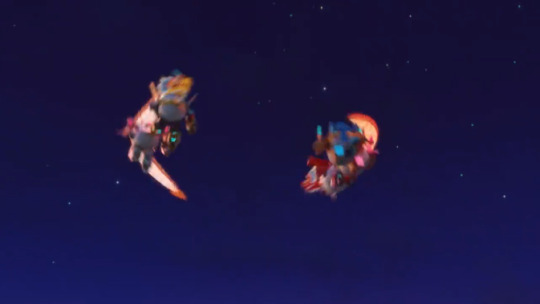
The dragon dance is performed by a skilled team whose job is to bring the motionless puppet body to life. The correct combination and proper timing of the different parts of the dragon are very important to make a successful dance.
The patterns of the dragon dance are choreographed according to the skills and experiences acquired by the performers. Some of the patterns of the dragon dance are "Cloud Cave", "Whirlpool", tai chi pattern, "threading the money", "looking for pearl", and "dragon encircling the pillar". The movement "dragon chasing the pearl" shows that the dragon is continually in the pursuit of wisdom.
The Dragon Dance is one of the most popular practice in the world that competion performances have been organized, those events have stricts rules involving the dragon movements and the routine performance. It is also performed in others countries, mostly in Asia like Japan, Vietnam and Indonesia.
#super wings#super wings cultural#cultural festival#cultural traditions#festival#cultural event#traditions
10 notes
·
View notes
Text
Lorecraft: Hermanubis
So after that lore bomb, I decided to write some of my own lorecraft that I did while writing "Memories of Flickering Sun" about Hermanubis in the game.
Hermanubis is the Graeco-Egyptian god that combination of Anubis and Hermes (basically Ancient Greek and Egypt decided ok let's mix our belief)
Hermanubis was mentioned explicitly 3 times in the game.
The Lay of Al-Ahmar
Cyno's Character Story
Lisa's conversation with Cyno during Windblume
We will first look at the first time we came across the word in The Lay of Al-Ahmar. I will look at this lore in other languages as well but mainly in English (because i am too lazy to swap language lmao)
The Lay of Al-Ahmar
This is the book the descibed the fall of King Deshret. How the 3 retainers of his tried to make him search for a way to win over life and death that leads to the downfall of their nation. Possibly how he came into contact with the Forbidden Knowledge. There's a small passage that mentions Hermanubis. This is the first instance in the game that mentions him.

The passage describes Hermanubis as the greatest of sages. He also mentioned that their tribe are "Tribe of the wise" known for "Generations of sages". Kinda implied that the desert dwellers in the past were known to be much more intelligent than even the scholars of Sumeru Akademiya. Now, they have lost their text and all records of knowledge.
We know from this book that Hermanubis seems like an important historical figure in the Desert's history. He's being revered as the Greatest of Sage. Someone with so much knowledge and wisdom yet failed to foresee the nation's fall (the desert dwellers didn't seem to blame him, though).
Cyno's Vision Story
The second time this was mentioned was in Cyno's Vision Story. This is when people gossip about how Cyno got his vision. Not only Hermanubis was mentioned but also "Hermanubis Priest".
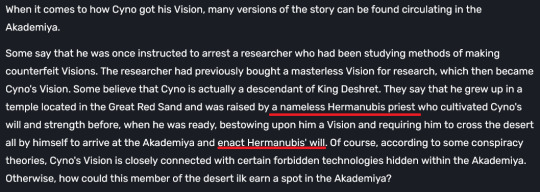
So usually, for someone to have a "priest" dedicated to them, they must be a very important person in a religious way. Especially when the rumour said he's here to "enact Hermanubis' will" which we still have no idea what is it.
So according to the rumour, Hermanubis is involved in something almost like a religious belief. We don't know if this rumour came from people seeing Cyno wearing the Wolf Headdress or not.
Lisa's Conversation with Cyno in Windblume
Probably the biggest bomb we have in present. Lisa and Cyno's conversation during Windblume event.
youtube
This is an amazing lore. Because before this we only know that Cyno is possess by a Divine Spirit and that he call upon them when using Elemental burst. We know that he form a pact with the said spirit and that he had this spirit for a long time. Way before he even got a vision.
Now we know that the spirit is "Hermanubis". Other than that, Cyno also mentioned "Priest's Power". I found the line in English to be quite confusing, so I went and look at Thai and Japanese. (I used to study Chinese but I can't remember it anymore haha)


From how they wrote it, it seems that "Power of Hermanubis" is a form of "Priest's power". Something like, powerful priest will be possessed by Hermanubis. Is it possible to have multiple priests having this same power? we don't know. In the ruins of Gurabad, we know that there are many priests including a high priest that was killed in the city. Yet, there was no mention of the priest also possessing the same power.
So from all of the mentions so far, we know that Hermanubis seems like an important figure during King Deshret's reign. He is loved by the people and revered as the greatest of the sage. Wise and bountiful in knowledge. However, even he cannot prevent the downfall of his nation.
The Akademiya know that desert priests can be possessed by Hermanubis and decided to experiment on Cyno who is someone from the desert. We cannot deduce from the conversation if he already has Hermanubis inside of him since the beginning and that was why he was being brought to Akademiya for experiments or if they force it upon him.
We do know that the power caused him great suffering, possibly because Akademiya conduct inhumane experiment on him and that's why Cyno decame who is. (I wrote a small rambling here about it lmao).
So now that we look at direct mention let's look at indirect ones.
First up, our boy Cyno.
Cyno
First thing that connect Cyno to Hermanubis is of course he's possessed by it haha. But that's not all. There's a significance in Cyno's character design, namely his Headdress. When you look at his outfit, this is the description.
Cyno's outfit. This garb displays the General Mahamatra's dignity and the just principles he sticks by. It was a rather complicated piece to commission due to Cyno's request for the custom-made head ornaments and requires regular maintenance.
He commissioned this outfit. The headpiece requires regular maintenance, something that seems impractical to wear and go into battle. But the heart of it is that Cyno requested the headdress in the shape of Hermanubis. Which is not a surprise because he's possessed by one.
But what is the surprise was the reveal of 3.1 cutscene where his headdress is the same as a certain someone. Kasala.
Kasala
Kasala is a well known priest during the reign of King Deshret. They said his "exceptional wisdom considered to be a miracle among the people". During the cutscene we finally saw him and what he wore.
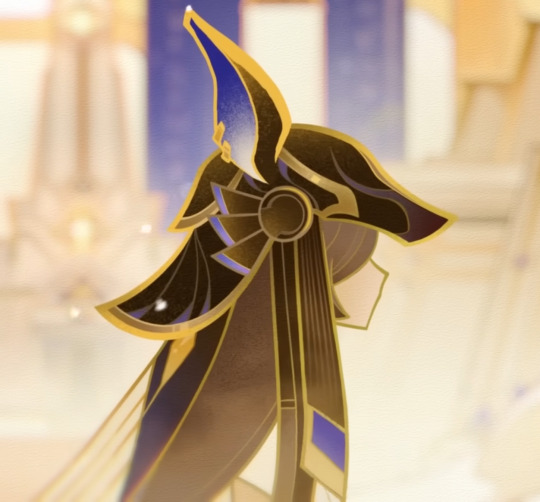

The similarity is very noticeable. And it isn't hard to notice Cyno's reaction once he sees the recording made by Kasala. He stopped to look at ponder before paying respect to Kasala.
Combining this with what we know in Windblume, if any priest could be possessed by Hermanubis, it's Kasala. He fits every description of Hermanubis even. Greatly respected by people, wise and loyal. Kasala may be one of the last priests to be possessed by Hermanubis, and Cyno is his successor.
But this is where the lorecraft starts.
What I think of this
If Kasala is one of the last priests to exist during King Deshret's reign, doesn't that mean that Hermanubis and Kasala exist at the same time?
This would make sense if we combine with Cyno's Vision story where there are Hermanubis Priest enacting "Hermanubis' Will". Kasala would be a Hermanubis priest. Perhaps Hermanubis is one of the gods working under King Deshret like how Guoba, a god of stove works under Rex Lapis. BUT in the cutscene, Kasala refers King Deshret as his "Eternal Lord". There's no mention of Hermanubis anywhere. There's no "Lord Hermanubis who serves under great King Deshret". Usually if you are a devotee of a god, you should mention that your god also worked under another right? Like how Liloupar mentioned that she's loyal to both King Deshret an Nabu Malikata. Calling Nabu Malikata her Mistress and King Deshret her lord even after he lied to her.
Maybe it's because it's only a short cutscene. But then again, Cyno's vision story is based on a rumour and we have seen in world quest how the Sumeru scholars like to draw very bad conclusions from desert dwellers' history and painted everything wrong e.g. How Tirzard painted King Deshret to be cruel to his people from looking at a mural of people bowing to him.
There are 2 possible answers to this.
Hermanubis is an immortal entity
Hermanubis is a mortal
So for the first one. What if whoever got possessed by Hermanubis is referred to as Hermanubis in Sumeru history.
Or at least, because of their headdress, the pictures that were etched on the ruins are instead, animal heads. This is to concor with Ancient Egyptian gods where the gods are mostly displayed with the animal head instead.
That would make more sense since to be a priest and gain power is to receive the power of Hermanubis. Maybe Hermanubis died long time ago and in Yae's story quest, we know that sometimes immortal spirit linger and possessed people. maybe Hermanubis never find peace which is ironic since Hermanubis is god who guides people to the underworld.
This is more likely imo.
So what about the second one?
But what IF, Hermanubis mentioned in Lay of Al-Ahmar IS Kasala.
The Lay of Al-Ahmar has never mentioned that Hermanubis is immortal or not. Even the retainers of King Deshret weren't mention in the book if they were gods of not. So far, only the Jinn, Nabu Malikata and King Deshret were explicitly mentioned that they are Gods/immortal. Even lord of the forest that create the Aranara is said to be a spirit summoned by Rukkhadevata in other langauge, painting them to be immortal.
Both Kasala and Hermanubis in the book share similar traits. They are said to be very wise. Well respected. They are faithful, seeing that the Hermanubis in the story did not conspire with other retainers. Maybe Kasala spirit became Hermanubis spirit that possess priests after his time. Because of how people revered him, historian mistaken Hermanubis for a god instead of a man.
But human spirit can't be stuck that long you might think? Well, the shades in Enkanomiya would like to have a word with you hahaha.
But wouldn't that be so weird because it seems like Kasala was at peace? Yes, that's why this theory has a loophole
It's a far fetch theory. but that's my thought so far
99 notes
·
View notes
Text
Reading my draconic chart (your intuitive identity before it incarnates a body)
26 Cancer Sun Contentment and happiness in luxury, people reading on davenports. Keywords: self-indulgence, success, a luxurious life, pleasures, repose, holidays, intellectual occupation.
24 Libra Rising A third wing on the left side of a butterfly. Keywords: illimitable potentiality, distinctiveness, originality.
27 Taurus moon a Squaw selling beads. Keywords: tradition, old spiritual values, ancestry, detachment, the relations between the old values and new ones can be harmonious, wisdom, an invitation to learn from the past.
Virgo 27 Mars Grande dames at tea. Keywords: Social recognition, to succeed in career, to respect the social rules, experience, maturity, to enjoy life at a high level, a sophisticated person.
Cancer 1 Mercury A furled and an unfurled flag displayed from a vessel. Keywords: adaptability, uncertainty, duality.
Virgo 8 Venus First dancing instruction. Keywords: to learn, to develop a skill, talent, art, to teach, to assist, a friendly attitude, to establish relations, to cooperate
Virgo 13 Jupiter A strong hand supplanting political hysteria. Keywords: personality, powerful social position, the ability to bring order even in an anarchic society, an organised person, leadership, a decision maker.
Aries 14 Saturn A serpent coiling near a man and a woman. Keywords: revelation, temptation, sin, self-discipline, being aware of both good and evil.
Pisces 21 Uranus A little white lamb, a child and a Chinese servant. Keywords: diversity, friendship, innocence, diffusion.
Pisces 24 Neptune An inhabited island. Keywords: unfriendly, alien, expansion, opportunity, independence, a new beginning, seclusion, privacy, solitude.
Capricorn 26 Pluto A water sprite. Keywords: opportunity, ideals, success, spontaneity.
Pisces 9 Lilith A jockey. Keywords: competition, ambition, agility, perspicacity, skill, elegance.
Leo 25 Fortune A large camel crossing the desert. Keywords: strength, courage, persuasion, persistence, the power to resist a long time in a difficult situation, to overcome from an impossible situation, to have reserves, a good character, an example.
Draconic Pluto is closely conj Pluto transit and Uranus and Neptune conjunct natal Moon conj transit Neptune
#Draconic chart#Astrology#Birth chart#Lunar nodes#Personal#Multidimensional#Layers#Transits#Vedic chart#Etcetera#Hilaritas Fan Starr conj Draconic NN
24 notes
·
View notes
Text
Lectio Divina and How That Looks in My Praxis
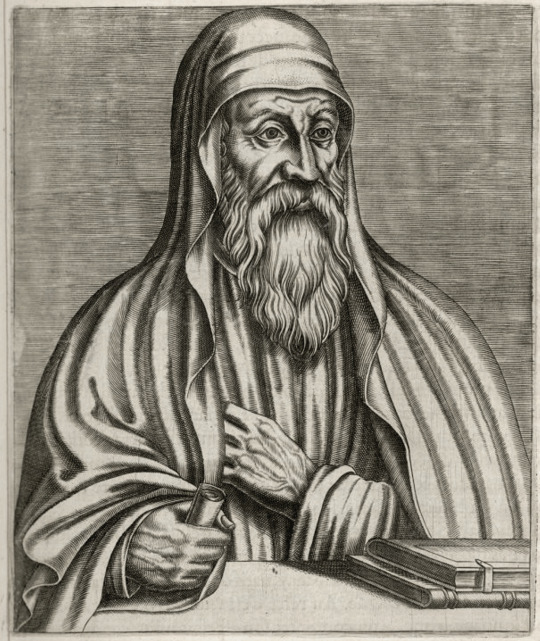
Lectio Divina is a Christian meditative practice within the mystical circles of the faith. It is Latin for “divine reading.” These more esoteric interpretations and scriptural practices were believed to stretch as far back as the 3rd century CE by Origen of Alexandria (185CE—253CE). The four-step method we know today was formalized by the Christian monk Gugio II in the 12th century. Not sure when the fifth step was added, but given that Gugio was a monk, I guess it makes sense why he would stop just at four.
So, when diving into wordy, philosophical texts such as the Dao de Jing, or Corpus Hermeticum, one may obviously want to pursue these texts from an analytical and intellectual perspective. While that kind of point of view has its time and place, it indeed “misses the mark,” so to speak, on what and how these texts should be read and experienced. Now Hanegraaff proposes that early academics viewed the Hermetic corpora as nothing more than a “literary phenomenon” with no actual practitioners. This was obviously due to how these texts didn’t seem to have canonical views and that the texts do not display a dogmatic structure resembling something like Christianity or Islam. He proposes that there was indeed a Hermetic Spirituality rather than some modern example of a “school of hermeticism” with many students diligently copying notes. This is evident in the only known “Hermetic practitioners” we can name today: Theosobia, Zosimus, and Iamblichus. We indeed see that Hermeticism was just as practical and involved much praxis as philosophical thought. I can’t say much about the scholarship in Daoism, but we have more evidence of Daoist praxis of which is heavily tied to Chinese folk magic.
From the beginning of my journey, I knew Hermeticism was right for me, it took me about a year to really settle into it and solidify my praxis around a Hermetic framework, so I wish to keep it that way. One thing I know that I, and a lot of other people I converse with, sort of mirror traditions and faiths that really embody what a Hermetic praxis looks like, as the evidence for what I have, as a Hermeticist, is that of the teachings of Iamblichus and Zosimos to Theosobia. We know philosophy and reading was prerequisite for Iamblichus in his apology of Theurgy in his Response to Porphyry, but mere intellection alone cannot raise us up to the gods and ultimately to the Platonic Forms. “…for it is not pure thought that unites the theurgist to the gods.” (DM II.11). For Iamblichus, intellectual pursuits were not the primary goal to us to return to the gods.
To put that off the way, what are the four steps to Lectio Divina as established by Gugio II? They are as follows (Latin on the left—English on the right).
Lectio—Reading
Mediatio—Meditation
Oratio—Prayer
Contemplatio—Contemplate
And the Fifth step is Actio- Action.
I will link another article explaining these steps in more detail, under a Hermetic understanding, as the purpose of this musing is just to reflect on what this practically looks like in my practice. (See my Twitter page for the link).
Before I begin my Lectio, my readings, I start with a prayer. This prayer was gifted to me by a friend many months ago, and I have edited it since then. My version of the prayer is as follows:
O God, teach me gnosis so I may know you in all your holy forms. Grant me the essence of the Prophets’ understanding, the eloquence of their memory, and the quick comprehension of your archangels. O God, bless me with your light of wisdom and quick experience, liberate me from the darkness of doubt, and open the fates of your light, O God of the Worlds.
Likewise, here is a Taoist mantra to recite before you begin a Lectio Divina, translated by a friend from a Taoist Discord Server:
誦經密咒
貪羅鬱羅,符無蘇陀。太沖太極,陰陽抱和。
出有入無,鬼神莫測。出生入死,變化自然。
元始混炁,玄中之玄。上干有頂,下洞太淵。
誦之一徧,沈痾自痊。鍊魂育魄,真陽自全。
齋戒禮誦,萬過飛仙。無上密咒,萬神綿綿。
心中心咒,重得宣傳。貪羅洞盟,與道合真。
玉清上極,梵炁氤氳。分靈布炁,降注臣身。
形神俱妙,變化飛昇。一如令格,統攝萬靈。急急如律令。
English:
"Recite the secret mantra, (the name of the mantra)
The entanglement of desire and sorrow, talismans offer no aid..
Supreme void, supreme polarity, yin and yang embrace harmony.
Outward is being, Inward is non-being, ghosts and deities can’t find or predict it.
Outward is life, Inward is death, it's natural transformations.
Primordial chaos energy, the mysterious center of the mysterious.
Above, reach the celestial peak; below, touch the deep abyss.
Recite it throughout; ailments self-heal.
Refine the Hun, nurture the Po, true yang becomes complete.
Abstinence, chanting, transcend the mundane.
Supreme secret mantra, myriad gods abound.
The mind that stays centered and be with the mantra, will attain the state of legend.
The net of desires has holes, united with the true Tao.
Jade purity ultimate ascent, Silence energy pervades.
Share spirit and give energy, descend it down to my body.
Form and spirit are both wonderous, transformations soaring.
Unified like the command, encompassing myriad spirits.
Please follow my orders."
These prayer are only said with the purpose that I will be “divinely reading” a chapter from the Corpus Hermeticum or Dao de Jing.
After reading a chapter from either text, I will meditate on them. The way it is described within the Christian tradition, this looks like after just basely reading the texts, you revisit the quotes and passages that didn’t make much sense or the passages that resonate with you, and the goal is to explore those feelings that are invoked in the reading. Here, I employ an act of pondus, Latin for pondering. This stage of the Lectio Divina in my praxis involves much emotion and self-reflection brought about by revisiting and further pondering those chapters and passages I have just read.
After my meditation, we enter the Oratio (prayer) step. I repeat the same prayer from above and further pray; since today is Tuesday, and I honor Anpu on Tuesday, I will continue with prayers in accordance with the great god of the scales. I observe a deity every day of the week, as this helps me keep my praxis more organized than praying to many deities every day. These prayers will include pre-written and informal ones to the god to help me further understand the words I have just read and meditated on.
Next, we come into Contemplatio. The way this looks for me is after reading a chapter and further pondering the passages that struck me as odd or true, I equip my shroud and gown, sit in the dark with earplugs, close my eyes, and meditate and sit with those words. So if I finish reading chapter 37 of the Dao de Jing, the terms and phrases I have underlined, such as: “Listen, with this unvarnished simplicity without a name, there will be no desires. Without desires, there will be peace, and all under heaven will be settled independently.” I will meditate on these words, silently reciting them repeatedly for 10-20 minutes.
When the rain noises on my phone alert me to return to my senses and close out the Cotemplatio stage, Gugio II would have me stop here. But like I said, there is a 5th step to this Lectio Divina Process, and I’m not sure when this 5th step was added. Regardless, I now enter the Actio phase. How does one put these words that we have effectively eaten, chewed, sat with, and digested into action? This four-step process brings about a great humility of the heart and soul. So when one effectively participates in a “Divine Reading” as prescribed with the guidelines proposed by Gugio II, this great humbling leads to greater and more discoveries of the Self, I purpose. As I’m struck with a great sense of humility, I am called to act for myself and better myself. Let’s return to chapter 37 of the Dao de Jing, how to be “without desire” in the mundane, everyday world? Whenever I’m struck with great passions and desires, whether positive or negative, I refer to the simplicity of reciting surahs and Hermetic maxims to help me return to a “desireless” state of mind. To what degree do I come “desireless”? Well… it’s not much. But the purpose here is to actively take our readings and intellects and apply them for something greater than ourselves, something ineffable and so transcendent it can’t be spoken of; for even the one who has come to understand The Great, i.e., God cannot speak on it. (SH 1)
48 notes
·
View notes
Note
I understand that Wukong is many times immortal because he ate the immortal peaches so I assume that he cannot age, but I wanted to ask, in addition to the gods, I have noticed that the demons and immortals, even though they have cultivated, they can still age and they may have the appearance of old people. So immortality or long life doesn't ensure that you look young according to Chinese mythology? For example, JTTW's nine-tailed fox, although possibly cultivated for a long time, has an old appearance. Can celestial fairies and beings who cultivated and attain divinity/reach heaven also age? Or let's say that aging can only happen to immortals and any being that has cultivated and decides not to achieve divinity or stays in the mortal realm?
How that works?
I understand that Wukong is many times immortal because he ate the immortal peaches so I assume that he cannot age, but I wanted to ask, in addition to the gods, I have noticed that the demons and immortals, even though they have cultivated, they can still age and they may have the appearance of old people
The body is an illusion, they choose to look like that. If you see old immortal is it not because they aged in heaven. It could be that they gained cultivation in old age, chose to look old, or only gained cultivation but not enough technique to gain a youthful body.
I see a lot of modern takes on why immortals look older/younger in modern media mostly being connected to that when you are accepted into heaven that you stay the age that you are cultivated to.
Like in the Ginseng Fruit Arc we see two youths that are well over a thousand years old but it could be that because they were cultivating at such a young age, that they are able to keep their bodies in that youth form. Similar to when Erlang Shen went to heaven to say his mother, he was a young man, and even when he got accepted into heaven he stayed at that young man (Erlang has no beard in most of his descriptions conforming his youth) form for the rest of his legends. It could also be a cultural thing as age is connected to wisdom and experience in Chinese culture and thus making their immortals look older is a sign of their wisdom and to highlight their power.
Also, you understand that Wukong has cultivated but cultivation does not always mean that you gain eternal youth. One of the peaches in the garden of heaven allows for that, thus implying that this is not a given power within itself. You can live forever but you body will turn into an older version, you have to work on another layer of cultivation to gain a youthful body as well.
So immortality or long life doesn't ensure that you look young according to Chinese mythology? For example, JTTW's nine-tailed fox, although possibly cultivated for a long time, has an old appearance.
It is again that kind of out-of-story context that looking old is a good thing in these settings. That looking young isn't a needed thing nor a priority and that these immortals are seen as old for the sake of respect. And yes that you need more technique in cultivation to look young as well.
Can celestial fairies and beings who cultivated and attain divinity/reach heaven also age?
They are immortals, not fairies, though I understand that is a translation error in media. All immortals age. They all keep track of how many years on year pass and use their age to show their superiority the older they live. If they wish to keep and youthful body or change their body to look youthful is up to them. The body is an illusion and they are able to change their form as they please.
Or let's say that aging can only happen to immortals and any being that has cultivated and decides not to achieve divinity or stays in the mortal realm?
It doesn't matter if you are in the mortal realm or the heavenly realm, you still age. We see this with the youths in the Ginseng fruit arc that choose to keep their youth form on earth but there are also youths in heaven as well such as with Golden Horn and Silver Horn. All immortals can age.
How that works?
This is kinda how it works. Body is an illusion, they choose to look like that, they reached cultivation at an old age and ascended looking like that, or that they were not able to keep the youthful body cultivation.
13 notes
·
View notes
Text
|| HSR Theory- Former High Elder (Dan Feng)'s Crimes ||
TLDR: Reviving the dead at a great cost to the populace and single-handedly damaging the 'rehatching' cycle) Content warning: Discussions of religious aspects (Buddhism)
In chinese mythology, dragons are believed to be among one of the first mythical creatures to ever come into existence. They are believed to be capable of a great many things, including the ability to affect weather, removing or causing plagues as well as calamities. I have previously touched on this on different occasions by giving the example of how they were said to have repaired the 'hole' in the sky together with the Goddess Nuwa.
A lot of chinese mythological content (Nezha, Journey to the West etc) produced also reference how dragon palaces are under various different seas, which we can also see in HSR. Dragons are depicted to all possess a core (heart) that stores the remnants of their spiritual power. Should it be damaged, stolen or destroyed, the dragons will either perish permanently or be significantly weakened/die depending on how one chooses to portray it.
The concept of purity is tied very much to water in chinese culture, where one cleanses off any traces of unhealthy spiritual energy. We also see a LOT of lotus motifs all over the area, which are also used as symbols denoting purity, for they often times rise from mud without any staining on them.
With all these factors in mind, allow me to also reference elements of Buddhism that I believe can be found within 1.2:
According to the religious belief, when people die, they undergo what is referred to as the "Samsara" cycle. Where they are thereby reincarnated, sometimes in a different form to live out another life and thereby gain wisdom through constant different experiences until their soul is ready to enter into nirvana.
Depending on the branch of buddhism and other religions that people fall under, some believe that before entering into the reincarnation cycle, the individual must first be removed from their former identity (so only their soul remembers the experiences of their former life).
Some believe in the legend of Meng Po (Lady Meng), who offers you a broth of oblivion made from herbs and pond water. Upon drinking it, the soul of the dead will lose memories of their previous life and be reborn as a 'blank slate'. Others believe the souls of the dead wade into the river where the waters will then cleanse them of the detritus of their former life.
Doesn't this remind you of the 'hatching rebirth' that the vidyadhara go through every few cycles? Doesn't this remind you of how Bailu heals others essentially with 'herbal water'? And how Dan Heng seems to have inherited memories of Dan Feng, whilst Bailu seems to recall none of her memories but also seem mostly stuck in the form of a child? Doesn't this also remind you of how followers of the Hunt seem to think immortality is a curse and how Yaoshi's followers have created abominable acts?
In chinese mythology, one is taught about the cycle of birth and death. Often times, there is a belief that interrupting that and trying to resurrect the dead is an act of unholy treason, a defilement of nature that often comes at a great cost.
Given all the aforementioned themes, I theorise that Dan Feng has likely brought someone back from the dead. However, something went horrendously wrong in the process, resulting in the damaging of the rehatch/rebirth cycle where one is likely supposed to retain their appearance and powers but not former memories of their life.
Given Bailu's form, I theorise that her former incarnation was involved in the process of trying to stop whatever calamity occurred and got severely wounded. Thus she is 'incomplete' due to the rebirth cycle being damaged.
20 notes
·
View notes
Note
I dare you to think of any LJH meta
Yeah, ok! I mean I'm on a language kick so if you meant like a specific theme you wanted to ask about her fitting into then like lmk but I'll just do another name meaning breakdown here.
李 智 慧
^plum ^knowledge ^wisdom
이 지 혜
^ common surname ^ these two together often mean kind of like a wisdom/knowledge of overcoming ignorance/evil/chaos. has some reference in Buddhist texts.
TLDR;
the surnames in ORV group the characters together in interesting ways and some themes connecting the Lees are connection to KDJ's (and to KDJ thru extension of YJH's) past/childhood, and experience of growing in adversity (symbolized by plum meaning of Lee).
We know LJH is a Jeonju Lee because she's a descendant of Yi Seokgi in text. The stories of Admiral Yi Sunsin with Yi Seokgi and Lee Jihye with Na Bori parallel in a way that emphasizes how the moral actions that define who becomes the hero of a story are context sensitive to a society.
Historical narratives/war movies typically portray a black and white of who was right and who was wrong that is supposed to seem obvious in hindsight, but are propped up too often as moral lessons that are always true, but will actually be different relevant to the standards of the current 'setting' (society).
Jihye's Hanja can refer to an understanding of some Buddhist concepts that represent an answer to ORV's question of 'how to survive in a ruined world' that Kim Dokja ultimately disagrees with.
Detailed explanation:
Surname Lee
Yi/Lee/Li is another one of those suuuuper common last names. 2nd most common in Korea and it trades places with 王 a lot in China's population count for #1 and #2 most common. (BTW Li is such a common translation of this last name despite modern Korean spelling of 이 partially because in. Middle Korean it has been spelled multiple ways [링,니,리] throughout history, partially because the word is so old and has to be written so often, it's survived multiple standardizations of the Korean language that English is still catching up to.) You can see the commonness of the name reflected in how so many ORV characters have this last name, (Lee Sookyung, Lee Hyunsung, Lee Seolhwa, Lee Gilyeong Lee Jihye...)
But if the usage was just reflecting 'commonness' then where are the 5 characters with surname 밝 omniscient reader where have the parks of the world gone omniscient reader did they all die in the subway car omniscient reader answer me.
... ok, I would argue that regardless of intentionality, the surnames in ORV associate some characters in ORV with the roles they each have and call attention to the similarities between them. Like, Han Sooyoung and Han Myungoh both play parts of like cartoonishly obvious villains in the early text (韓 has some national pride attached to it because it's one of few Hanja commonly used in modern Korean bc it literally just means Korea today, but the etymological root is that it's a picture of a fence so you could infer like Chinese calling a nation past dynasty borders the nation over the fence which implies a separation/opposition I suppose), Yoo Sangah and Yoo Joonghyuk have sort of an emphasized relationship to Kim Dokja I discussed a bit earlier, and Kim Dokja hates Kim Namwoon because he was projecting his self-hatred of a cringe younger version of himself onto him.
So the thing that stands out to me about LHS LSH and LJH is that they're all people who are related to Yoo Joonghyuk's "past". (Sn: I feel SYS is exempted from this grouping because of her unique position in relation to time/humanness/KDJ&YJH, her surname 申 is from Chinese astrology (stars and specific symbolism you could call daoism)/timekeeping a summer month around gregorian August, but is also used in Korean phrases associated with honesty/earnestness, w/ promises and requests) . Conversely, LSK and LGY are a few of the 'real' people of KDJ's world pulled into the scenarios by his influence and also kind of remind of his past/childhood. So I think this actually has to do with the meanings/associations of this surname's hanja
李 is easy to remember with the meaning of plum because it's a picture of a child 子 hanging down from a tree 木. Plums don't actually have as long of a history as you might think because relative to Chinese language in like 1250 BCE we only have evidence of domestic plums starting around 400 BCE. HOWEVER despite a lack of genetic evidence, Western Zhou inscriptions on bronze (which are called 金文 btw if you wanted to know that KDJ's name is like maybe even more related to lit history lol) have been found to contain this glyph:

Wherein, rather than tree, the little asterisk looking thing is actually the lingual precursor to 米 which as a noun means like a grain/grass/wheat type of situation. How does that make sense if the plum is from a tree and not a grass? Well, linguists speculate the character is pictophonetic and the precursor to 米 is just giving the sound of the character, but it could also be an implication of cultivation/domestication/having the nature of a crop in my opinion, which would be cool if true because inscriptions of this kind occur previous to 771 BC, which is 300 years before extant physical evidence implies plums were domesticated/cultivated.
(Sn: Sorry ok all this is very cool to me because I love how far back you can trace things in Chinese Language. Like if you think about where language begins, I'm reminded very much of the nature of humanity and how ORV puts it with the metaphor of the wall. The first evidence we have of Chinese writing is the oracle bones that Shang people used, and these scriptures showed an already fully formed language that may have been used on more degradable materials. But the oracle bones lend this sacredness to the idea of the written word. The Shang carved characters into ox bones and turtle shells to ask their ancestors questions, and the ability to communicate with ancestors to predict the weather, the relationship of an individual to the past, stood at the very foundation of many East Asian societies for centuries after this point. Yet you wonder, who was the first prophet of bones? Was the first pictograph we might call language an attempt to communicate to a deceased loved one? To ask a question? To write on a wall, not knowing if there was truly a reader on the other side? It's something I think of with this theme of impossible communication that ORV is making a statement with about all of literary history.)
Either way, the inclusion of the word child is significant, because it's not just tied to the fruit being 'born' from the tree, but possibly also the symbolic significance of the plum throughout literary history. This is because plum is very associated with the season of spring. Like literally if you've ever played mahjong or looked at old daoist texts I guess there's this whole thing where there are 4 flowers tied to the 4 seasons and the plum blossom is the blossom of spring. And you know when you literally have like old old old guiding religious texts that basically Explain what those seasons mean to people at the time that becomes the foundation of medicine/ruling philosophies you can see like there are some very consistent themes tied to the plum blossom and thus the character 李.
First is the idea of birth, which makes sense because spring is when the whole world is coming back to life after winter, and the flowers of the plum tree are one of the same. (Sn: a lot of daoist/naturalist influence in literary symbolism is based in the idea of scale... Like the galaxy is a microcosm of the universe, the planet is a microcosm of a galaxy, a human life is a microcosm of the planet, etc.) Because of this, the plum and spring sre associated with childhood/ the early stages of life, (as 子 implies). In this sense, it fits well that 李 would be used for important characters in raising KDJ (his mom and the people he admired in YJH's story) while also being used for LJH and LGY, whose youth in comparison to their harsh situation is often commented upon by the narrative. The other aspect of this meaning is the idea of blooming in spite of adversity, in that the first blooms of the plum blossom may appear when it still feels like winter, bringing the first signs of spring, thus the growing in spite of adversity. Thus, it makes a lot of sense to name a lot of the characters in a literal Apocalypse novel 李, they are blooming/growing in spite of their harsh circumstances.
(Sn: the history of plums/ stonefruit in East Asia is really interesting, sent me down a rabbit hole of trying to figure out what the first domesticated stonefruit was, but it's far back in time enough that 1 day isn't enough time to find that answer.)
In LJH's case in particular, 李 is also an important connection to the historical figure Yi Eokgi. This actually means she's one of few characters featured in ORV we have a Bon-gwan for, since Yu Eokgi was descendant from the Jeonju Yi clan (who made Korea's royal seal the plum blossom when they were in power btw). This is pretty interesting and ORV does like super get into it in the movie theater chapters, but I'll put some context here if you like do not know about Korean war history.
So war is a really interesting narrative in ORV because of a certain discourse on the sort of tokenization of tragedy in storytelling/propaganda. For instance, a huge theme of early Korean literature is the victory of Silla in the three kingdoms period, because extant Korean literature begins with the ancestors of the Silla nobles who conquered the peninsula. Thus, in tales of the three kingdoms, Silla may be portrayed in a better light/more accurately than Goguryeo and Baekje. Up to the modern day, these tales get retold over and over again with different actors, which is part of the point the arc about the war of kings was making, that these noble, dressed up pictures of war don't stand up to actual conflict or modern day issues, that they get rehashed over and over again as if to invoke some sense of national pride when in reality they've lost meaning/application to modern wars/society beyond the profit made by selling their recognizable images. (Shout out to Min Jiwon, her surname's hanja means 'pity' btw, lol) In contrast to this history, Admiral Yi Sunsin is someone who recorded his own history in logs without the intent of publication (as far as I'm aware), and his image/story was taken by the literate of his time only to be fed into that same content generating machine of the modern day, where war movies commercialize and glamorize the battles he fought. (Sn: ORV calls him by his posthumous title, wherein the Hanja for 'loyalty" was used despite the fact that Yi Sunsin notoriously disobeyed the emperors orders and was right to do it. This name kind of relates to this concept of the written word as a masking narrative bc he also had a given name that basically meant servant of the emperor and there's a famous letter where he was like this servant is going to do the opposite of what you said actually to the king) In the context of ORV and modern SK society, the military is just another industry the young people of today are filed in and out of, and men in particular are obligated and often made to feel there is a real need to participate in the industrial complex of modern warfare. So, this is relevant to KDJ's life experience of mentioning being sent to a bad post during his time serving, in the sense of showing war to actually be quite soul draining and unremarkable outside of fantasy.
So in the idea of considering Yi Sunsin 's Real Life story as something tokenized into "Narrative," Yi Seokgi is like almost less than a sidekick. He was a commander in Yi Sunsin 's first notable battle with Japanese forces, so the two often fought alongside one another, yet he's not the individual that is most often put with Yi Sunsin or remarked upon as his close 'comrade' in history, so it makes sense in the realm of ORV that maybe his story isn't well known. I personally think this is sort of because his story is tragic in the sense that the moral of it is to not follow orders of stupid government leaders who don't understand reality... In that he died because he went to a battle when the king ordered it after Yi Sunsin was arrested and stripped from his post for disobeying because he knew it was a stupid order. In addition, I've seen some conflicting versions of this, but some say he went to his own death over the side of the ship when Korea's loss seemed apparent.
So this is really interesting then in the concept of LJH and Na Bori (surname means Net btw). Because it puts LJH as this Yi Seokgi whose obedience to Narrative turned her into a Yi Sunsin. Like, in the epilogues we can see her interactions with Na Bori in that LJH is the younger one who gets teased and called crybaby, who relies on NBR. (What if I was casting myself overboard because of our impending doom and you were a net that caught me and we were both girls lol) Then, NBR takes care of her further by sacrificing her own life. Then, this is the incident that draws the character of Yi Sunsin 's (also I say his name here, but consider that the monikers of the constellations are actually pretty important in the meta narrative context of a Character, a being that symbolizes something in a story, an idea, rather than the actual real person with their own private emotions and such. Also how they aren't able to communicate directly until the point where KDJ himself is becoming like a character to us too. The constellations picking someone then who best understands their story/relates to it is a form of viewership/readership in a way) attention to this particular ancestor of Yi Seokgi, in a way that kind of shows a version of his own story, what if the young and inexperienced Yi Seokgi was the one to live instead? Would he become the same kind of hero in different circumstances? This concept of seeking your own narrative in the stories of others recurrs, obviously, all throughout the narrative of ORV.
(sn on that: I think that KDJ finding his own narrative in different ways between LJH and KNW is also important to the main narrative of survivorship that drives KDJ's initial interest in the world of WoS because of the fact that LJH's survivors guilt and indecision are, in contrast to KNW's over-enthusiastic ownership of the identity of "murderer" relate to the internal debate of KDJ's own self hatred, in that self-exoneration through blaming the situation is the side of KDJ's trauma that triggers his self-hatred/that he has to let himself misremember to keep on living. In opposition, LJH is a "murderer" who KDJ feels sympathy towards. In the world of WoS promised to KDJ in that very initial concept of "what if everyone you know had to kill others in order to survive?" The introduction of these early characters in ORV is always tied to that idea of how they had to become a killer in order to survive. In the beginning, compared to KNW, LJH is someone KDJ wants to see be dissimilar from that version of himself)
So the battle highlighted in the movie theater chapters is the battle of Myeongyang, which is pretty important. In history, basically what happened is that the court and king became convinced by a Japanese double agent that they could ambush a Japanese fleet in a certain area of the sea that Yi Sunsin had actually been to and knew there were like just some absolutely shitty awful rocks there and so, despite not knowing about the double agent plot, he refused to take his ships out there for no reason. This double agent plot was like literally set up because Yi Sunsin had defeated the Japanese fleets a few times and they wanted to lure him right to those shitty rocks and kill him. Turns out they didn't have to because the idiot king got so pissed at being disobeyed that he had Yi Sunsin locked up and like broke his legs and wanted to kill him also but got convinced not to. Yi Eokgi and others who had fought alongside tried to stick up for him, but Yi Eokgi was sent out with another commander to sail right into the trap. Then like I said, some tellings say he died by 'honorable suicide' at sea and some say he was run ashore and killed, I'm not sure. Either way, I'm pretty sure ORV is working with the former version. In that case, Myeongyang is the battle wherein Yi Sunsin had just been reinstated and rushed out to look for the fleet that never returned.
So this is why the movie about this battle reminding LJH of her dead friend connects, because, presumably, the sea attributed to her sickness is the location of Yi Eokgi 's suicide, parallel to NBR voluntarily giving her life to save LJH's.
Another narrative occuring here is, again, the parallel of the fantasy situation to the reality of this kind of trauma. Just like KDJ and other's skills only come into play in the world of WoS, the environment -specific nature of LJH's abilities is particularly emphasized with association to this sea that is a reminder of her greatest personal trauma. This is interesting because I think the overt message of this scene is KDJ forcing this idea of like using your trauma as a necessity to become stronger, which is very interesting in the context of helplessness to narrative and the fact that KDJ's idea of being like the sacrificial goat that has to endure all suffering for the sake of any happiness to occur in the world being the final boss of ORV... Also interesting in the context of the way natural human tragedy/history is edited into narrative visavis the commentary of historical narrative here.
Because if you look at YSS, he was this admiral whose greatest advantage was always just knowing the sea the best of anyone else. He knew where the shitty rocks were, and Myeongyang was named the battle of Myeongyang because when the king was like give up on finding our guys and just fight with the land troops he was like nah man I got 12 ships here and ships are only good if there's water, and he sent one of his boats to lure the Japanese fleet of like 300 guys into the Myeongyang straight that just had like hella whirlpools.
So the idea of someone who is weak on land but strong in the sea is very parallel to that aspect of trauma which is the fact that trauma responses are trying to prepare you to encounter traumatic situations again, and when you don't encounter those situations, they just linger and stay with you, and in some ways they become a weakness in dealing with everything other than that very specific situation you once experienced. So in this section KDJ is telling LJY to get over her trauma and use it for this specific situation, that having endured killing a human being once before, you are prepared to do it however many times it takes to keep living and get to the end... But again, the entire text of ORV is challenging this idea of "necessary" traumas, and YSS is someone whose story reflects this in an interesting way.
Because YSS and YSG's 'tragedy' as told by ORV was probably quite preventable in real life. It was not really 'necessary' for so many people to be killed in the previous battle for YSS to win the battle at Myeongyang, but the bearing these aspects have on the power of his narrative? Would this story be told so many times over if YSS hadn't faced such adversity before the most told legend of the 12 ships under his command retaking the sea from 300 Japanese ships? YSS's eventual death at sea is retold over and over, while YSG who also died at sea during battle could have died any one of a few different ways without public consensus. It reminds me of that theme of little tragedies in ORV, the idea of a personal tragedy that will never reach the scale of a great story or narrative. Because narrative in some ways asks a tragedy to justify it's existence, to have a reason to be told so many times over, to fit to a certain model of what others want or expect. Like in real life we should be looking at the idiot king from YSS's time and thinking hey maybe you should just listen to people who know what they're talking about instead of having an ego about it, what an asshole, it's stupid that the government system gave him the power to do that shit, etc. But in the context of narrative, an idiot king is basically a setting, the innate nature of an uncaring and cruel world context is static and immovable, and the hero's interaction/relationship with that setting creates plot. "This is just the way things are, it's so realistic" type comments evoke this aspect of fiction that seeking radical joy in narrative fights against. Because in this narrative of war, young people are asked whether or not they will die following orders or live disobeying them, but the answer in LJH and NBR is that whether or not obeying the order to kill or resisting the order to kill will lead to certain death is completely dependent on the will of that setting the which narrative does not dare challenge.
So the aspect of war narrative adds onto this idea of systems/narratives/what we see as 'reality' having to be torn away to find the true heart of something. Because the reality of war reveals is that all death is senseless, tragedy is an impediment to happiness, not a requirement or precursor. Our sense of narrative merely gives the two a false relationship.
You can be happy without suffering, you can suffer without being happy, and you can be happy after suffering and suffering after being happy... Human life isn't always so simple as a one-way transition between winter and spring
Given name Jihye
智慧
Basically this word means wisdom, so you could interpret the whole name as like growing into wisdom or having to do with how YSS's quotations are repurposed as aphorisms or something, but like I said these characters are actually also used to translate the concept of 'prajna' in sinicized Buddhist texts. It also means wisdom/understanding/insight but there are like specific concepts that are supposed to be being Understood in the context of Buddhism u know. Basically: 1 nothing lasts forever (impermanence), 2 what causes suffering (I think usually Buddhists say the answer to that question is desire, idk), 3 the lack of self which Chinese translate 无我 (there's a huge split on what that means depending on the tradition) and sometimes also a secret 4th thing that's basically like nothing has inherent/meaning/form besides the illusions we construct of them (void).
The reason I find this Buddhism connection interesting is because I think that Buddhist philosophy (just in my experience of others trying to convert me/telling me why they prefer it not saying this is the case for everyone who prescribes to any branch) does this thing religions do where it tries to answer an impossible to solve problem that humans have but I don't necessarily agree with the solution. Like lots of religions are kind of based just in this reality that people dunno what being dead feels like when they are alive and are trying to predict it through the lense of their own societies, but Buddhism is kind of unique in that most of the branches with extended afterlife mythos develop like way later on and it doesn't immediately try to describe the creation of the world or assert any similar myth whose details are actually extremely related to the context of the society it was originally told in and hard to relate to outside of that worldview, Buddhism starts from the point of a guy who tried being rich and tried being poor and was like, I suffered doing both of those things. They both kind of sucked. Which I think is part of why Buddhism has such this huge spread across societies so early on in history because the silk road goes both ways but Buddhism caught on like a wildfire in East Asia and maybe part of that is that when your dynastic lineages and model of society goes back so fucking long it doesn't actually seem feasible to change your society as much as it seems to be able to remove yourself from the stresses existing in that society causes you.
So, 无常, 苦, 无我,空。 Society feels permanent, but there is no permanence. Bitterness exists because of this illusion of society. The concept of 'me' a symbol that represents my being to others is not actually a truly solid, unchangeable thing. To be void of the desires, concerns and stresses in the world you cannot change is 空 in the sense of void/lack of activity, but also in the sense of freedom. (Sn: I think I like the Chinese translations of the last term more than the English "void," because most English speakers will picture a dark space and feel trapped, but Kong makes me think 'do you have some free time?' which I think lines up more with the Buddhist idea of 'freeing yourself' than like the idea of you are confined to your mortal existence or w/e)
So in relation to the concept of narrative, this idea of 'wisdom' demonstrates that reaction of interaction with a horrible setting/worldly suffering/trauma/ etc. I think that because the lack of interaction/removal of self from the world is characterized as a philosophical enemy of ORV wherein 'caring about others and being happy with others does not always require suffering and even if it does keep trying to be Happy' and emphasizes the idea of the importance of individuality and identity and personhood, the name of 'understanding' in this sense is representing that LJH initially has a worldview KDJ has to fight against. Because her lack of participation in the scenario to avoid causing more suffering is like the first conflict between her and KDJ and he convinces her to fight to survive/keep on living/ interact with her suffering in a way that kinda contradicts from the idea of 'escaping the self' you know. Because at the core of ORV is that question of how do you go on living when you've done something horrible? In this sense, LJH's 智慧 is just another one of the stock responses to trauma Kim Dokja must react to in a sequence.
(Sn: once more on the concept of how narrative can justify something horrible, LSK's narrative redeeming herself in the eyes of the public vs the horrible truth she was trying to conceal. The idea that killing is acceptable in the scenarios but KDJ must conceal a past of murder outside of that space. The side characters shown to delight in horrible acts as soon as the setting/worldview has changed to expect it in them and reward them for it.)
I also think that ultimately Jihye represents the first introduction to the "reincarnator" solution to the ruined world that is later followed up by Nirvana and YSA, and KDJ's journey through that is kinda like a journey to the east instead of west where separating from narrative and your most important relationships and sense of self are the final boss.
#cw existentialism#cw death mention#cw religion#cw war#cw suicide#i talk alot sbout plums here lol#orv spoilers#orv#omniscient reader’s viewpoint#lee jihye#yi jihye#li jihye#yi ji-hye#anonymous#ask
21 notes
·
View notes